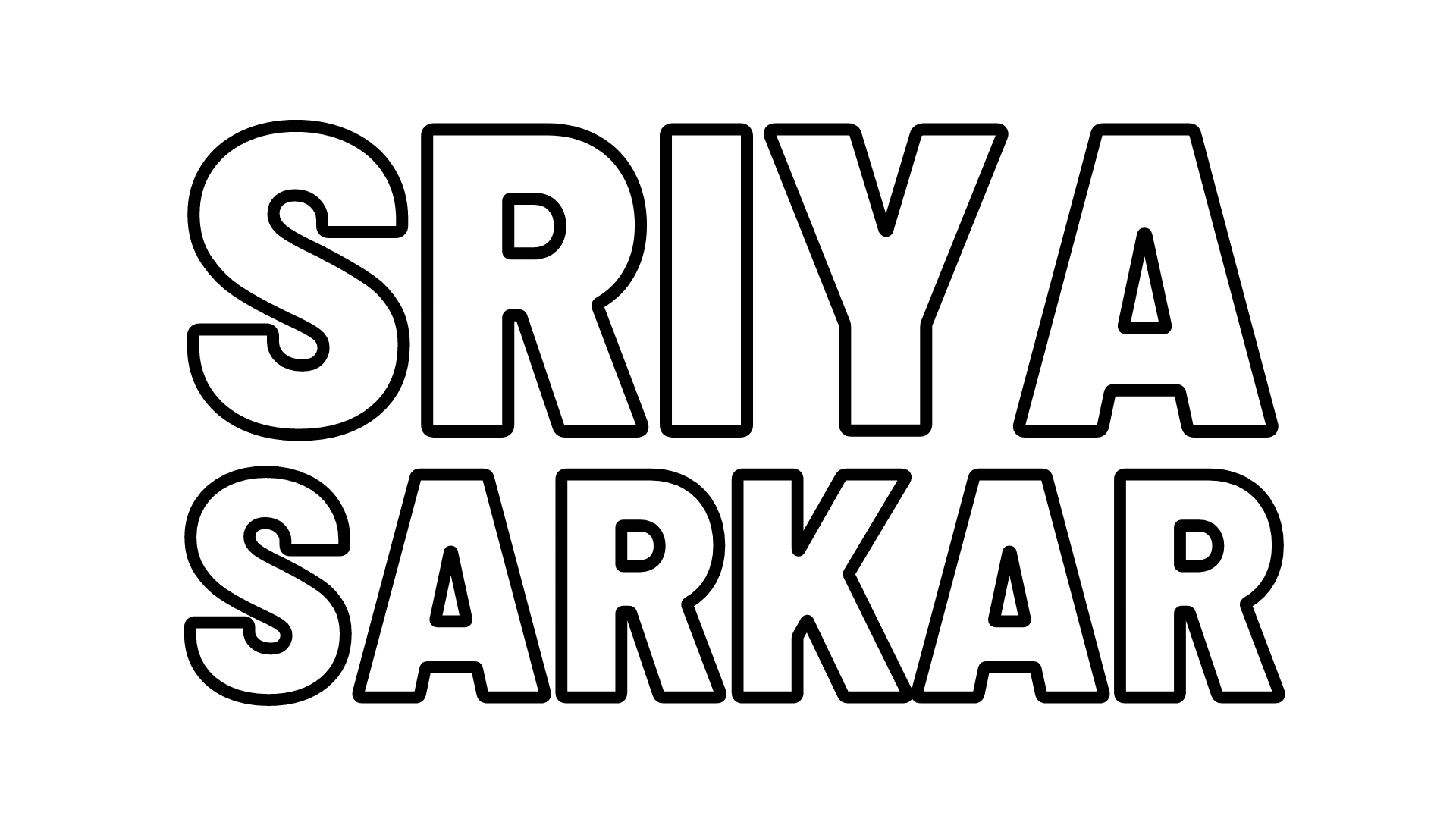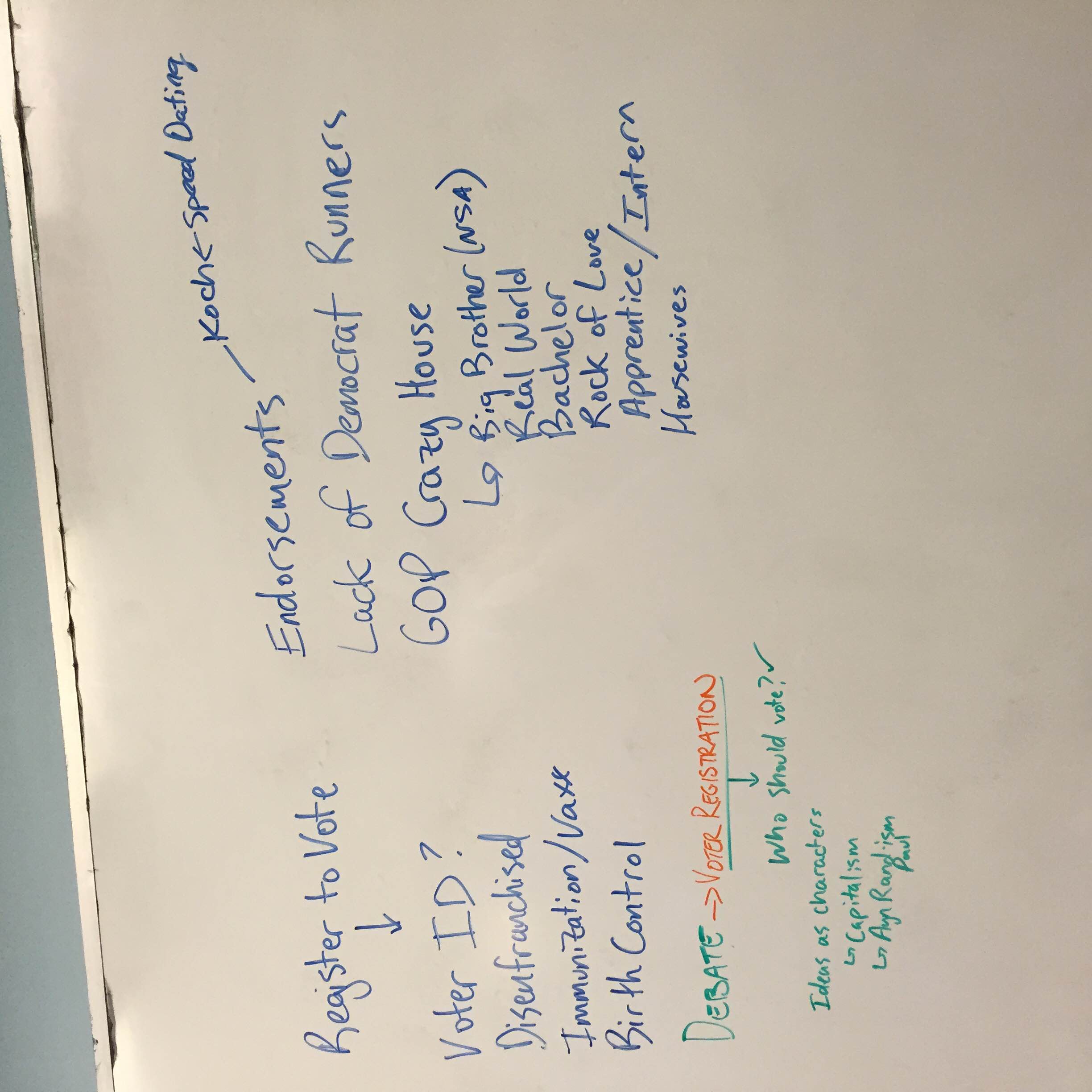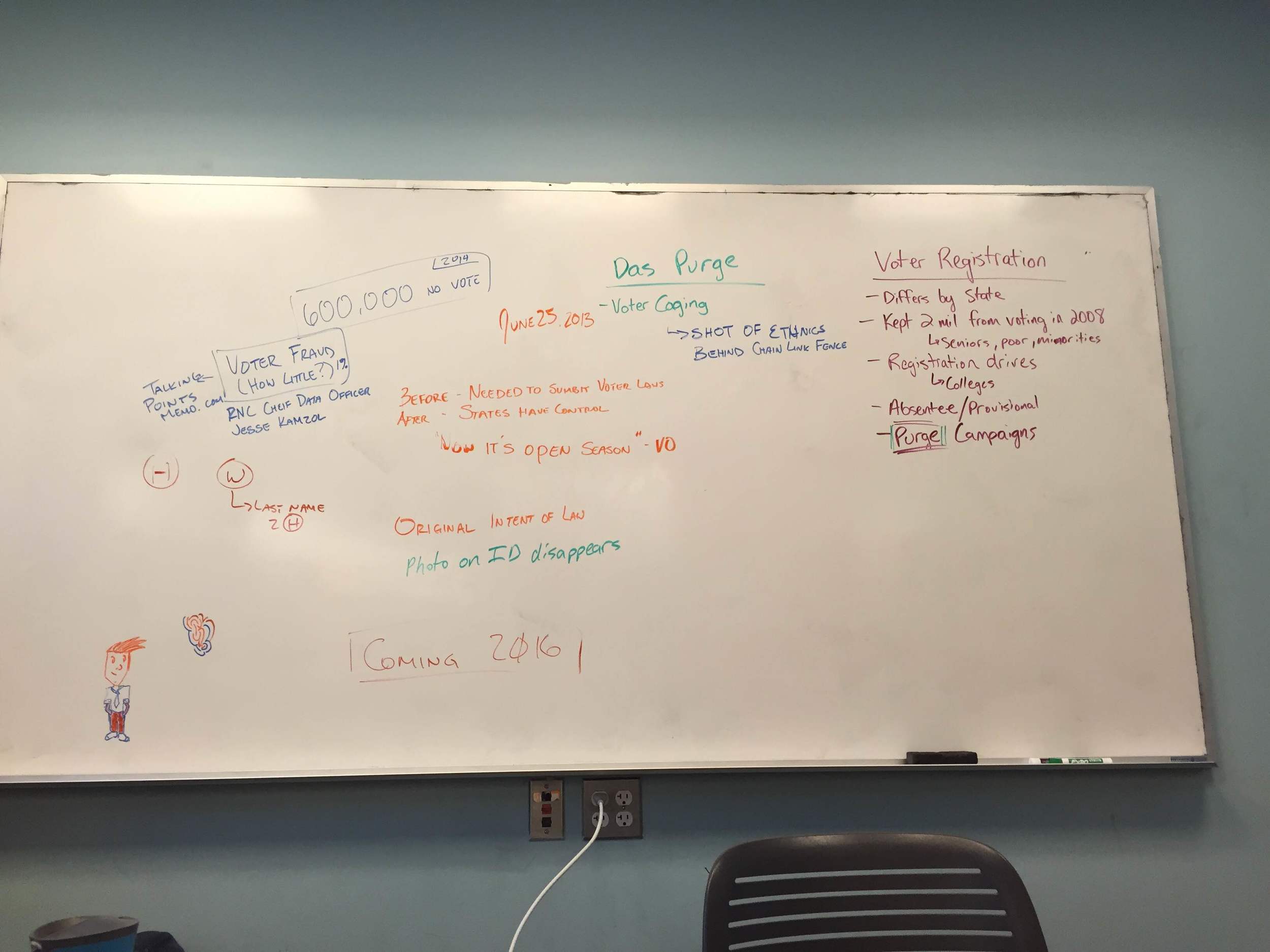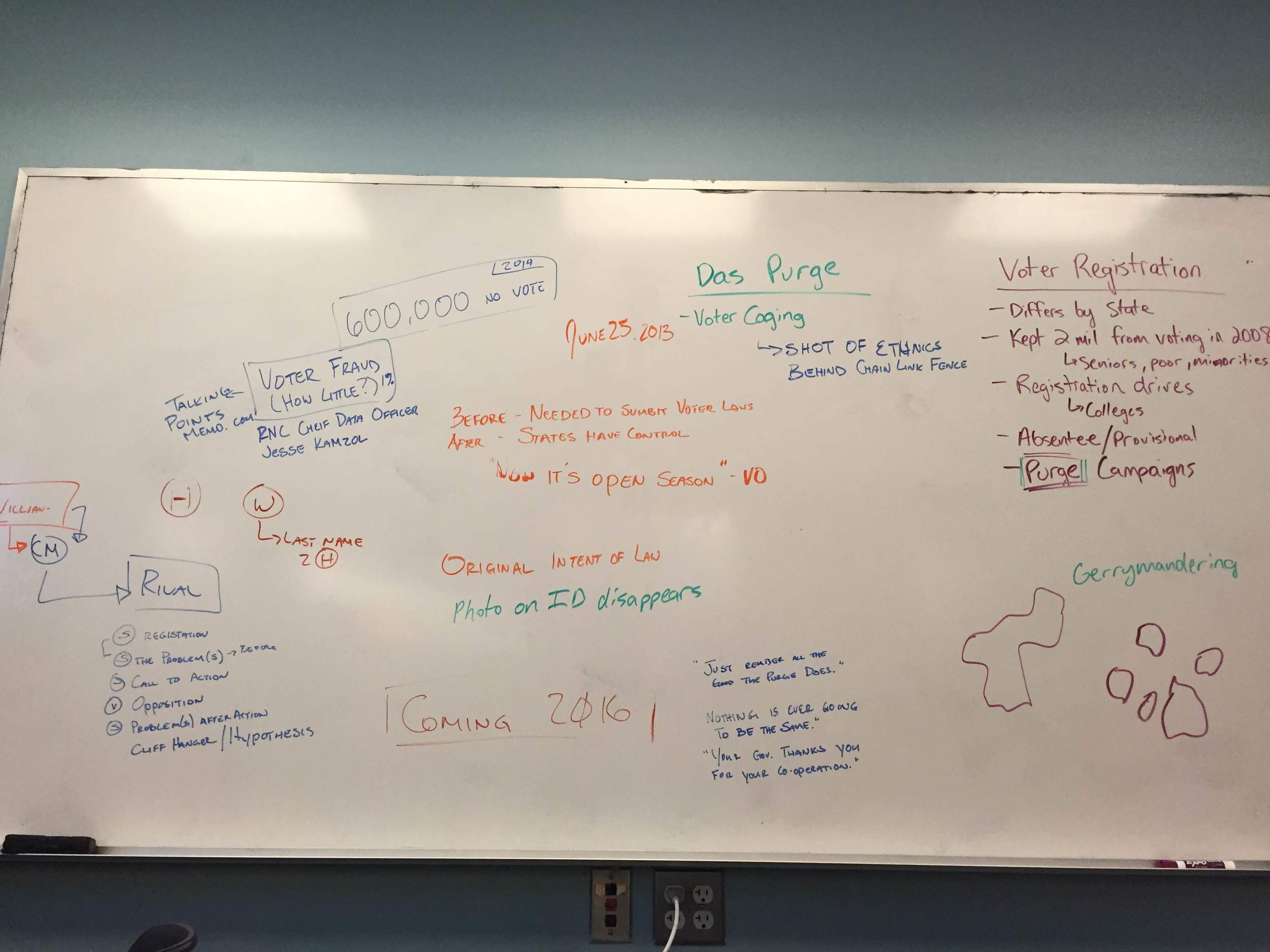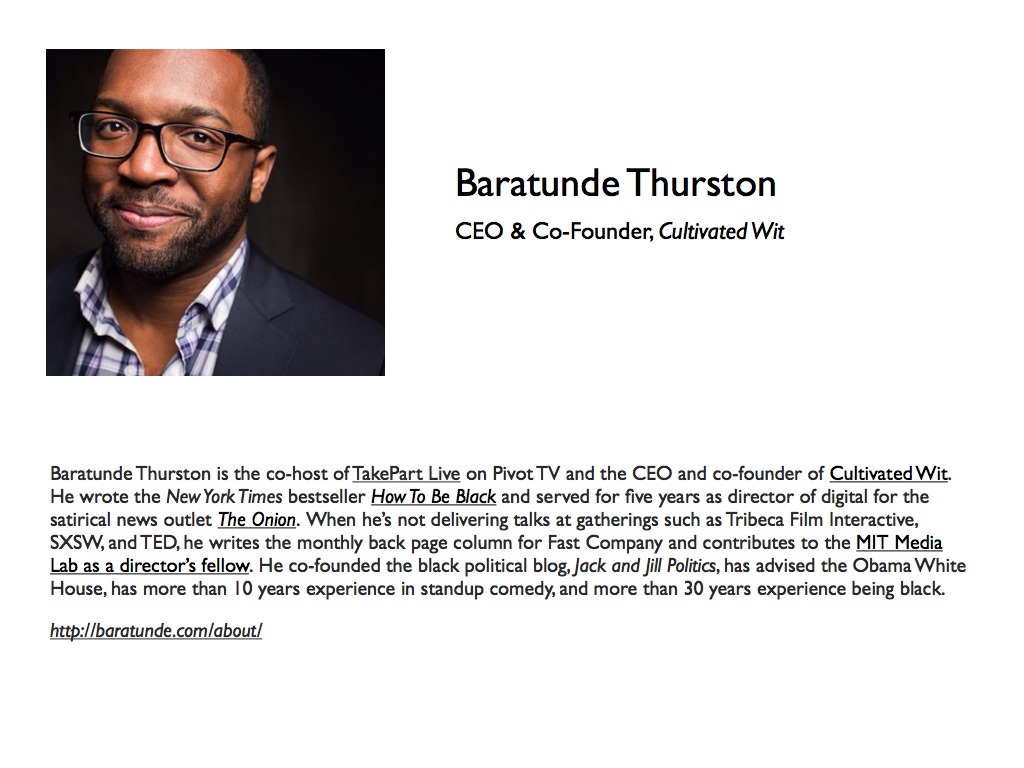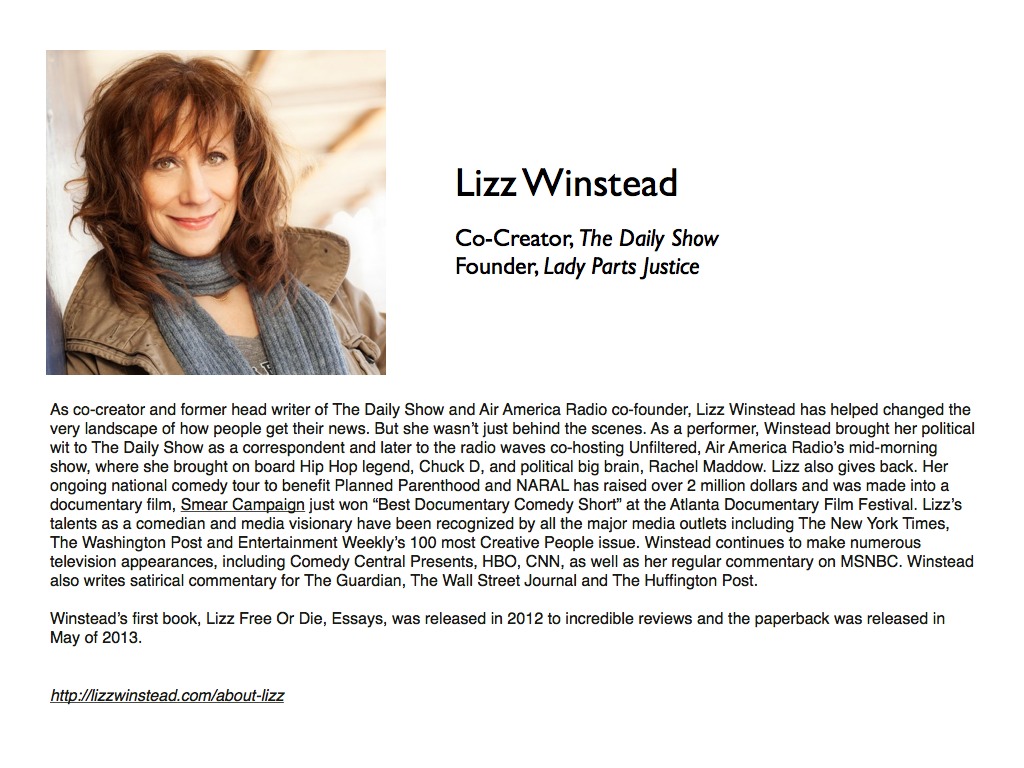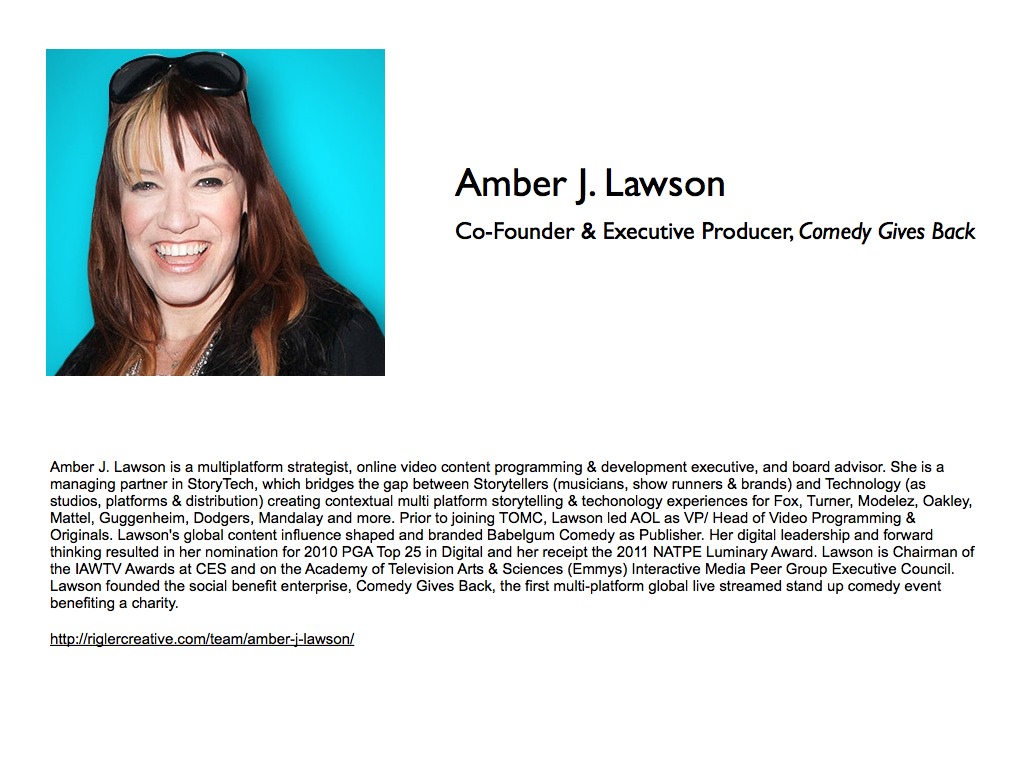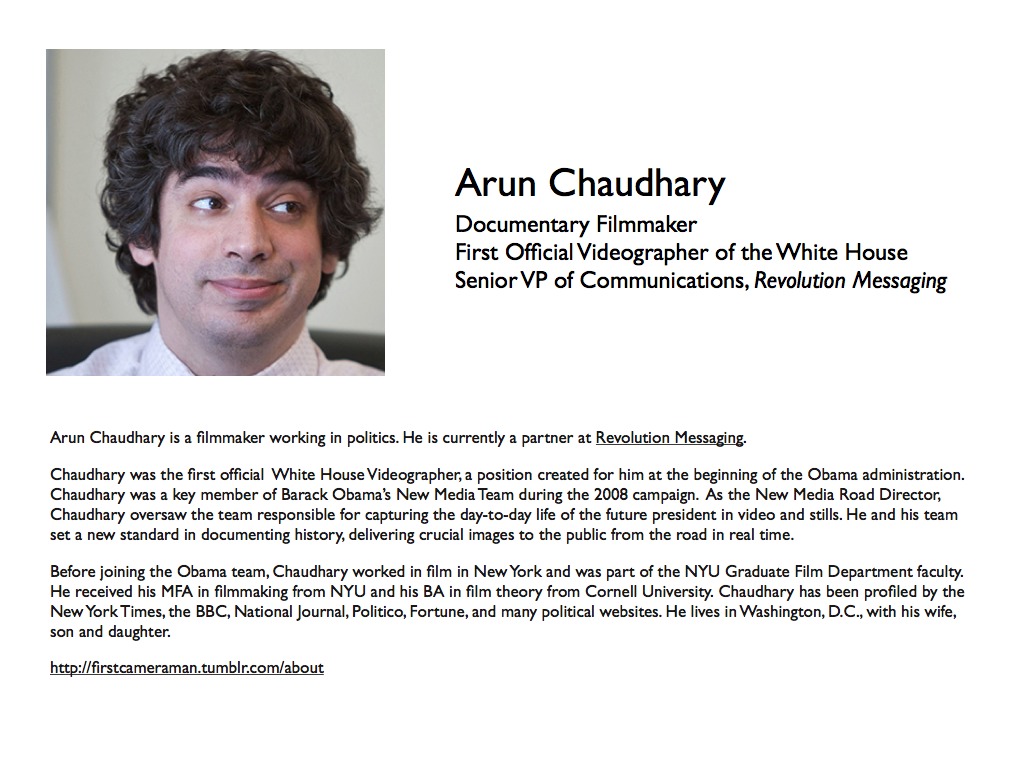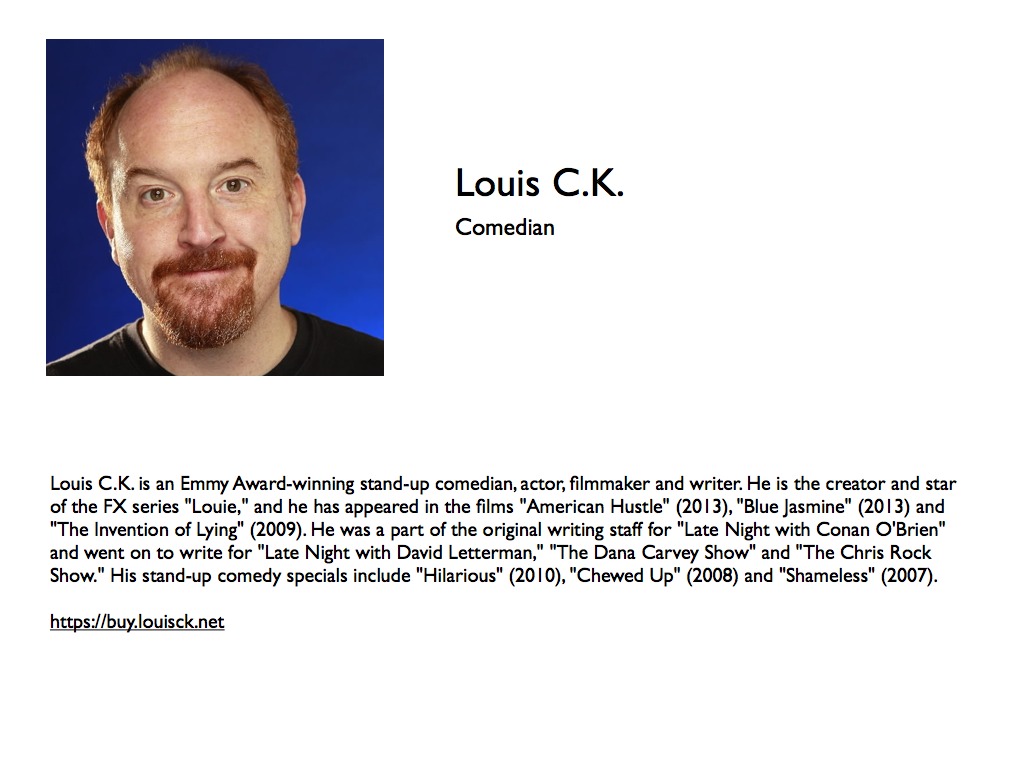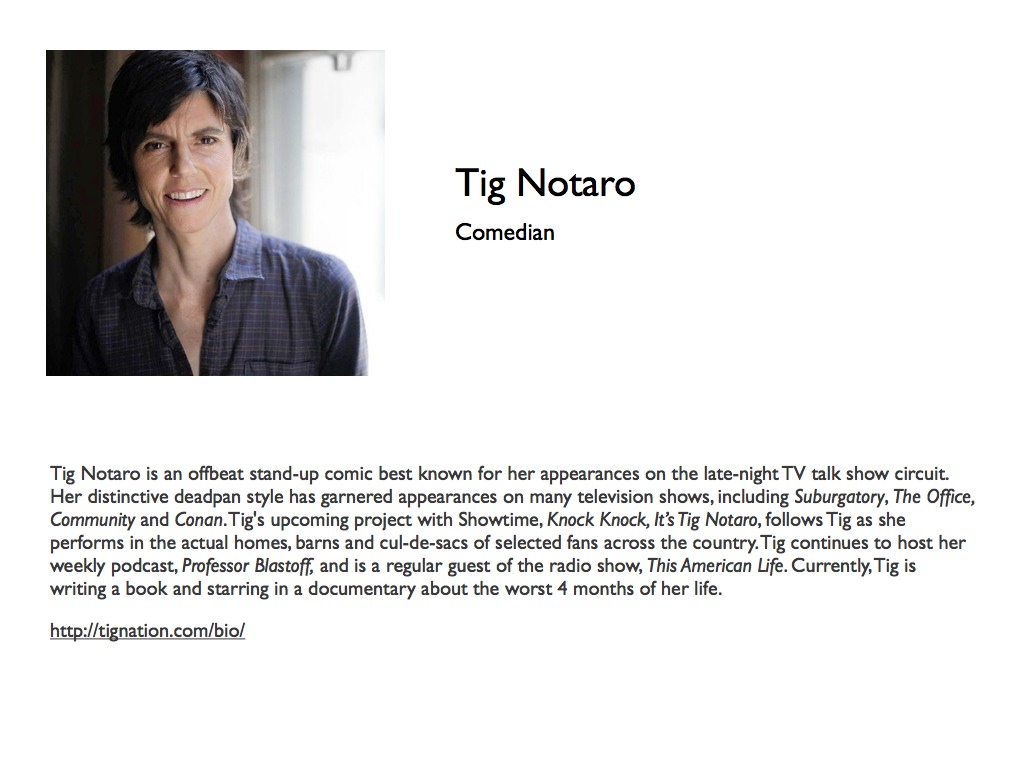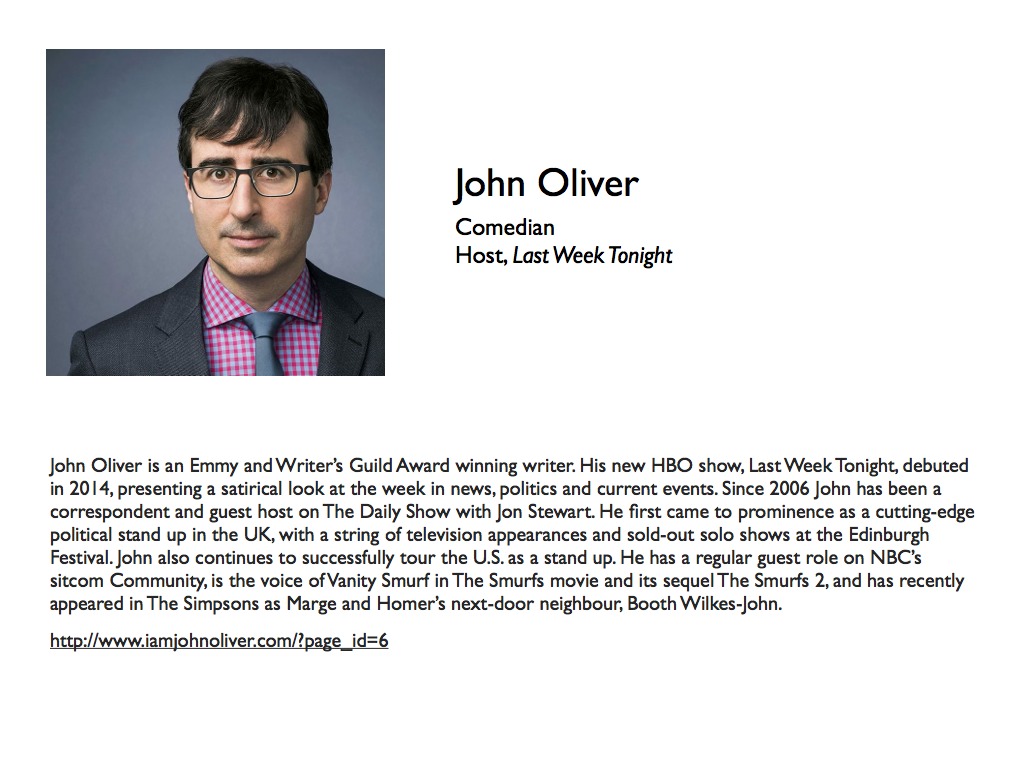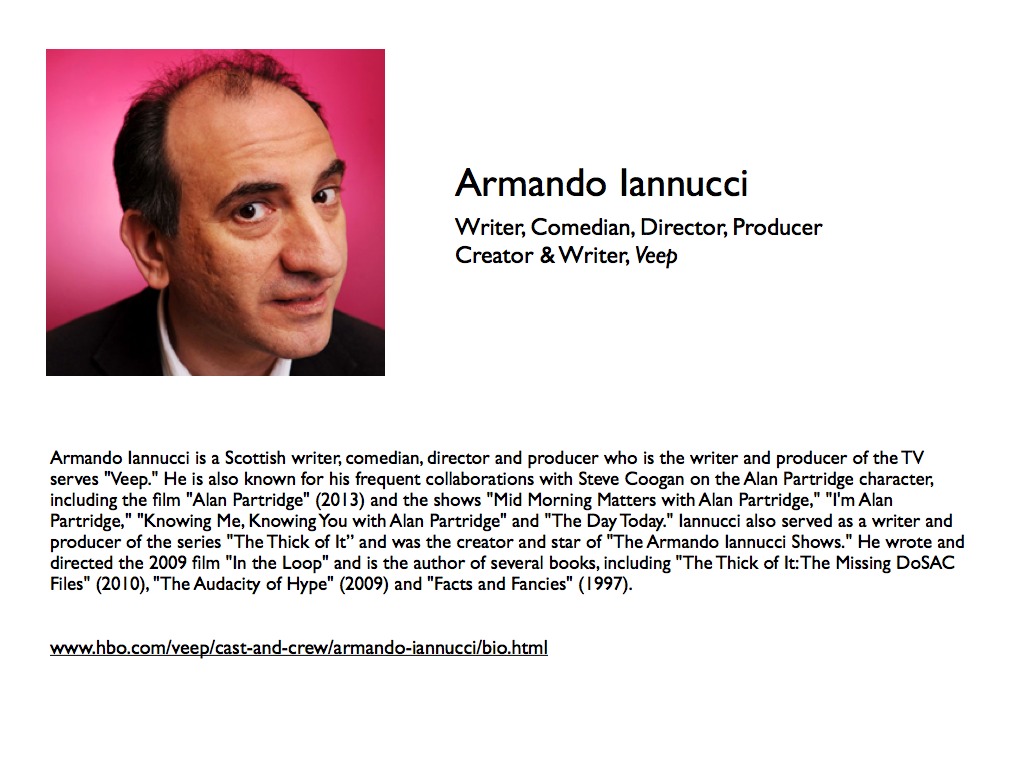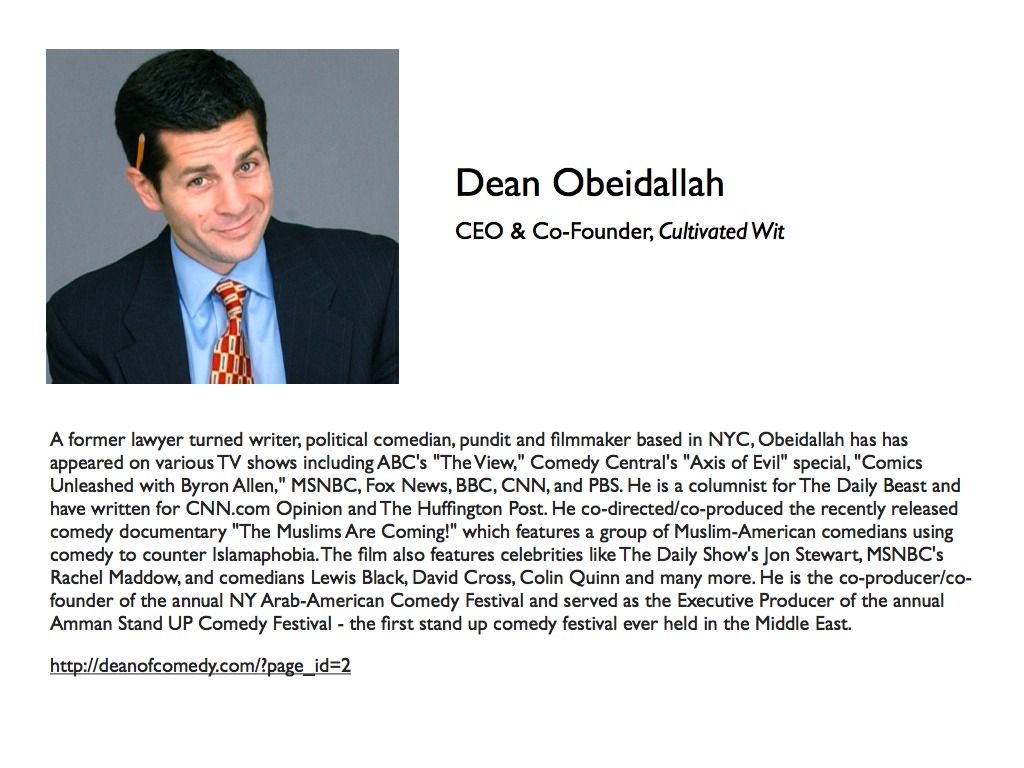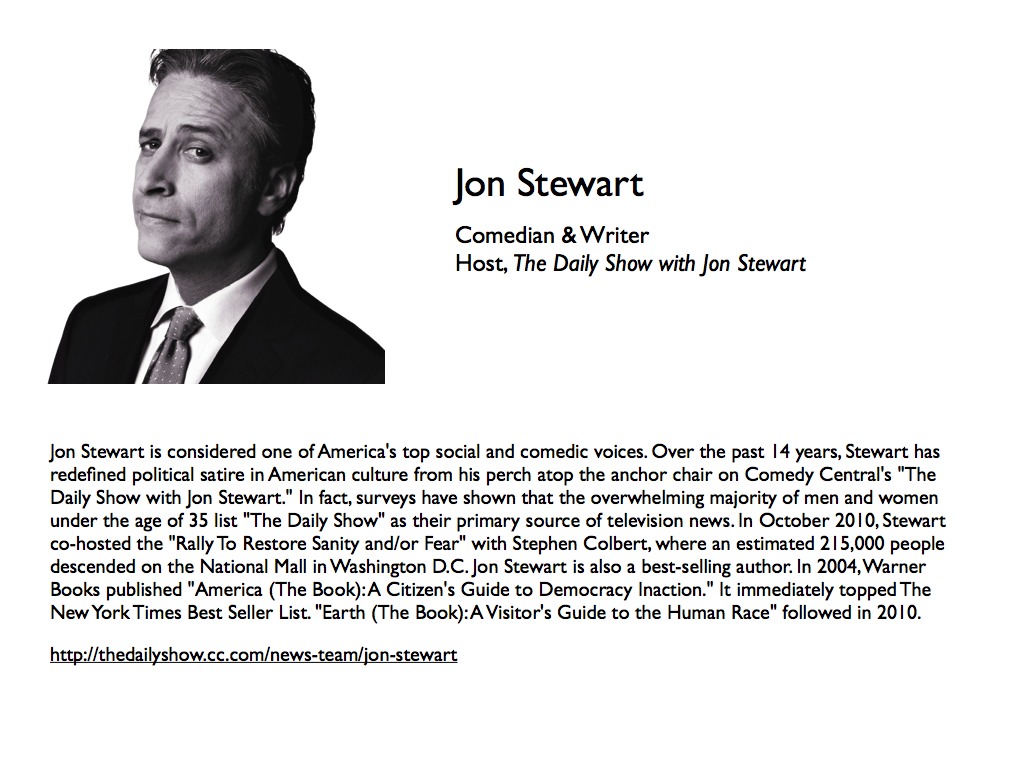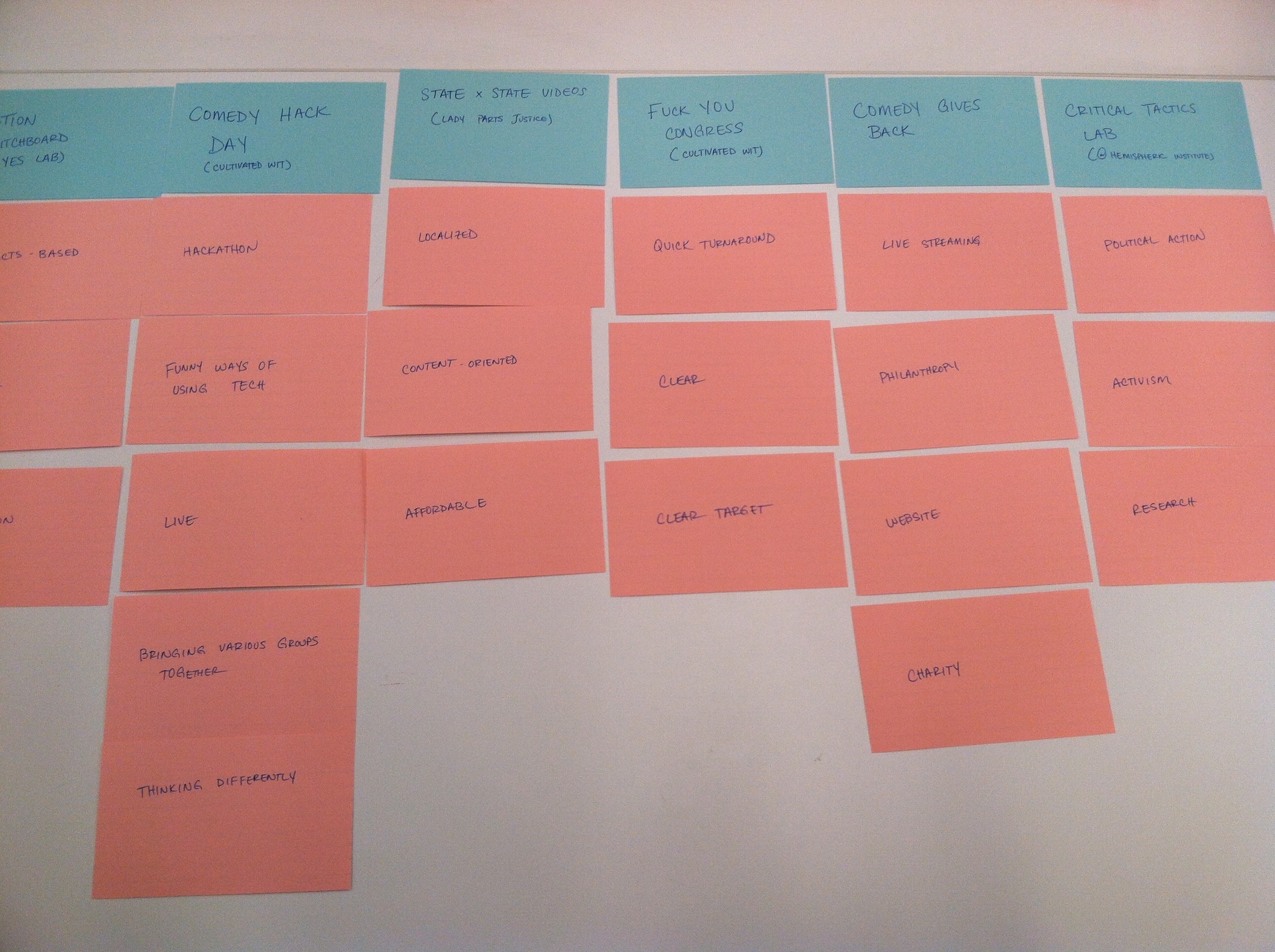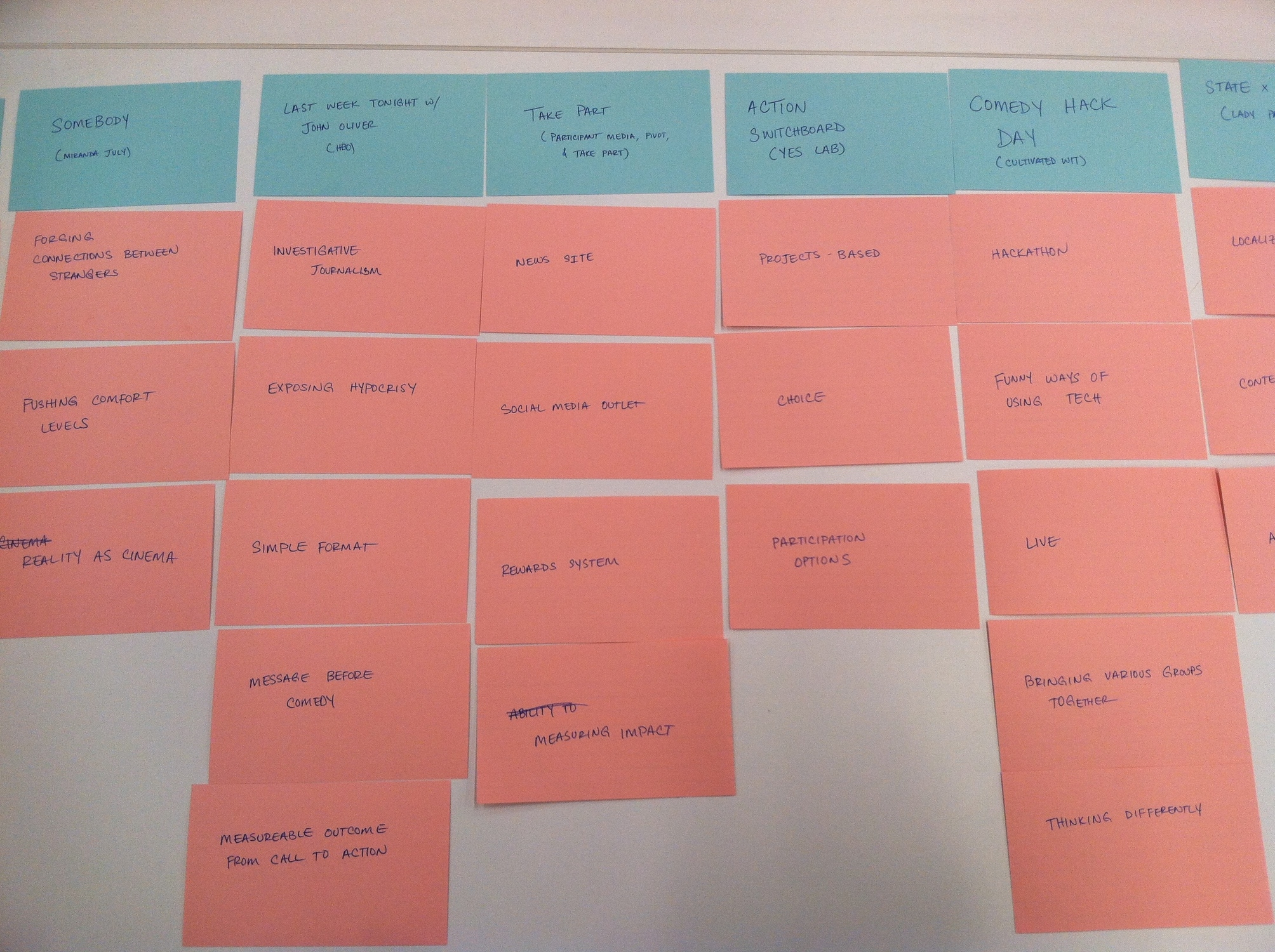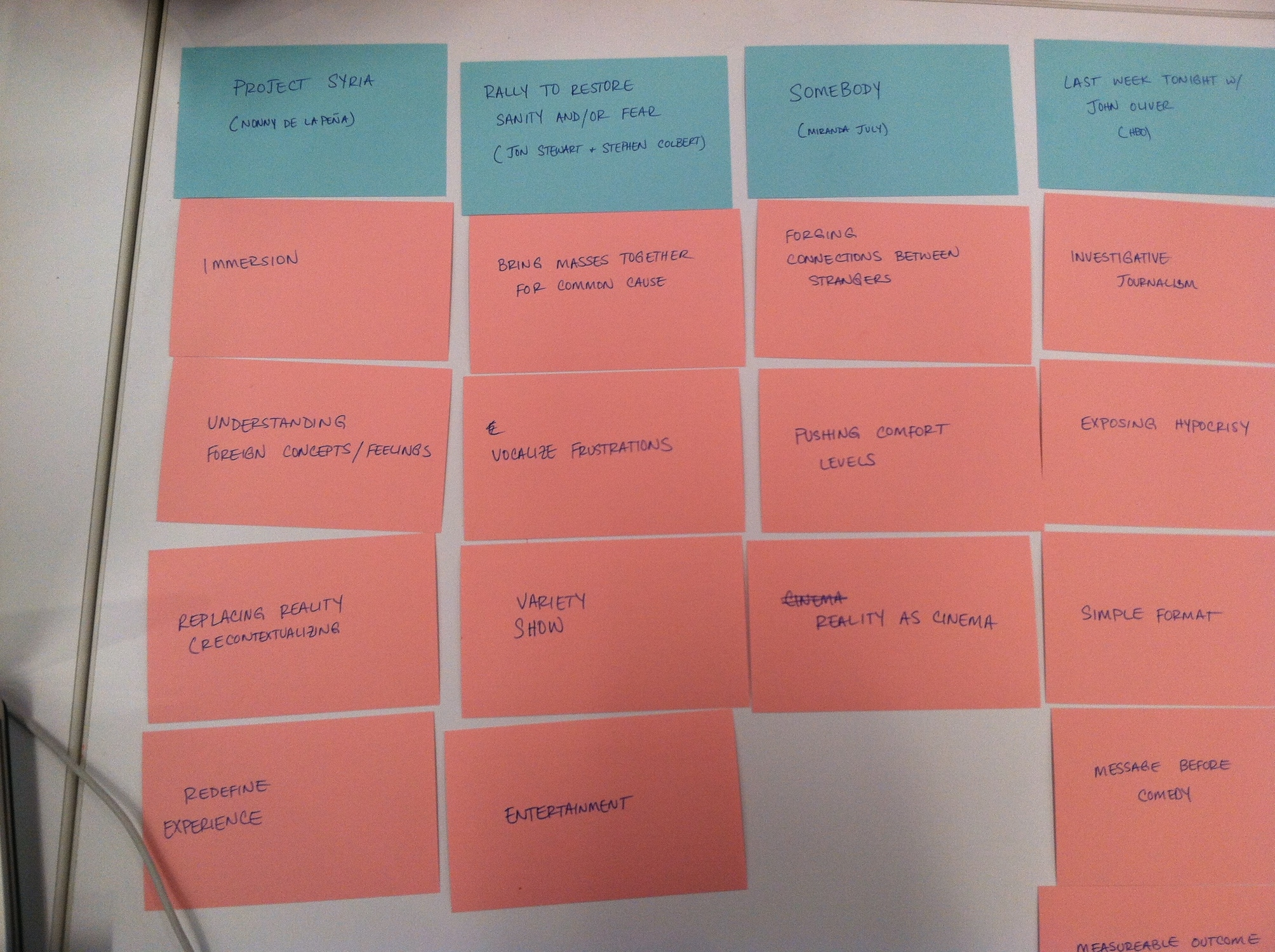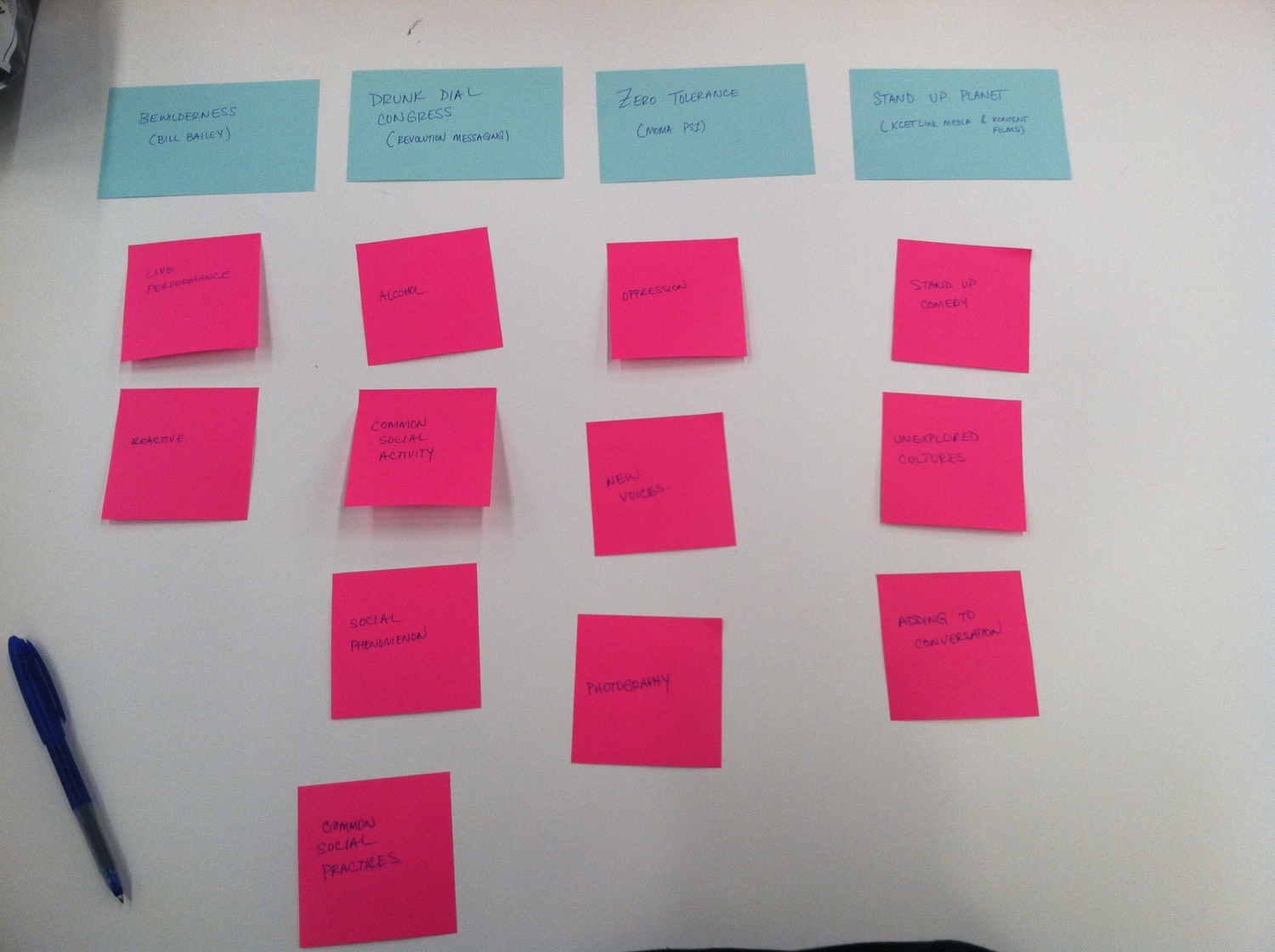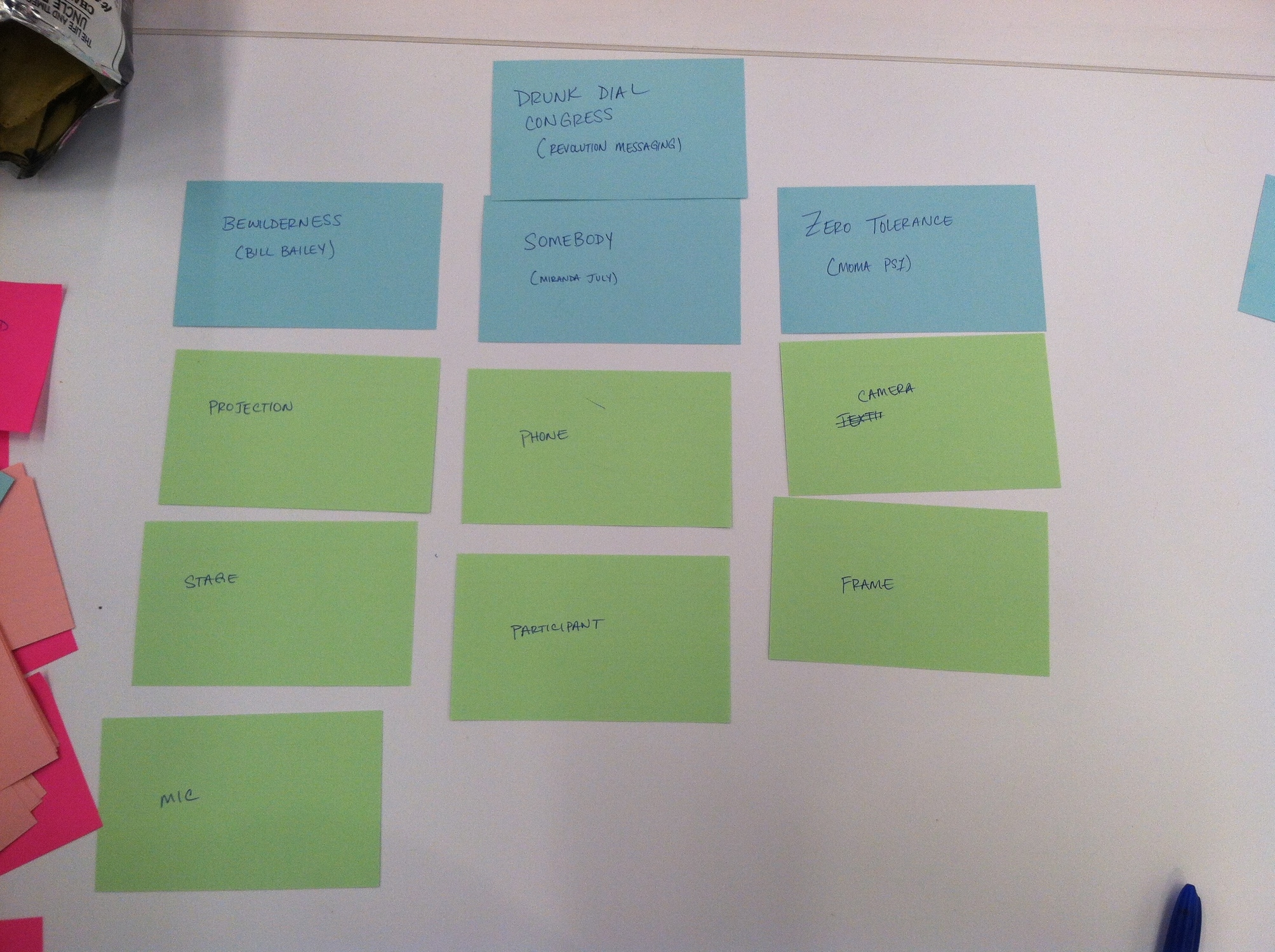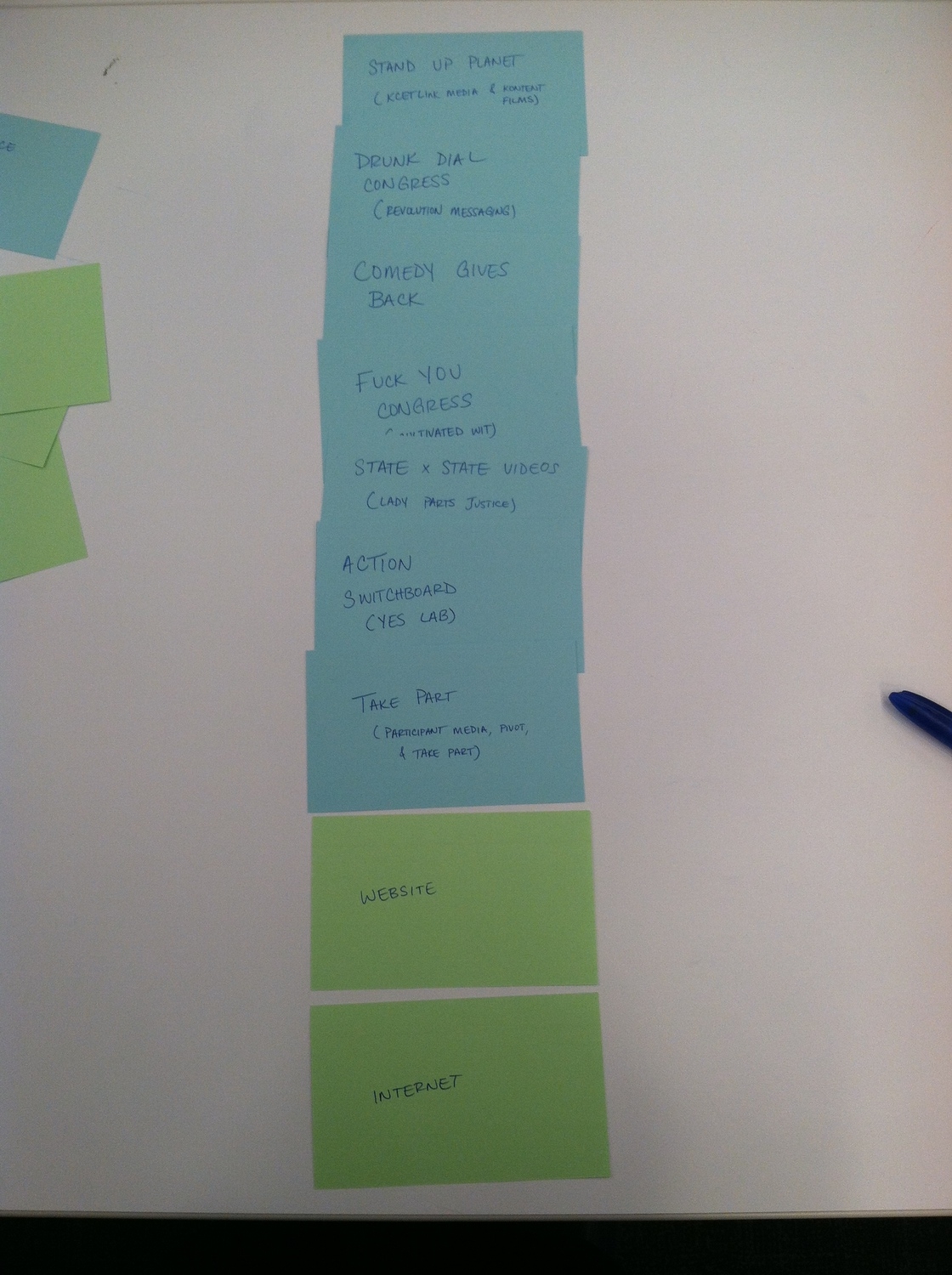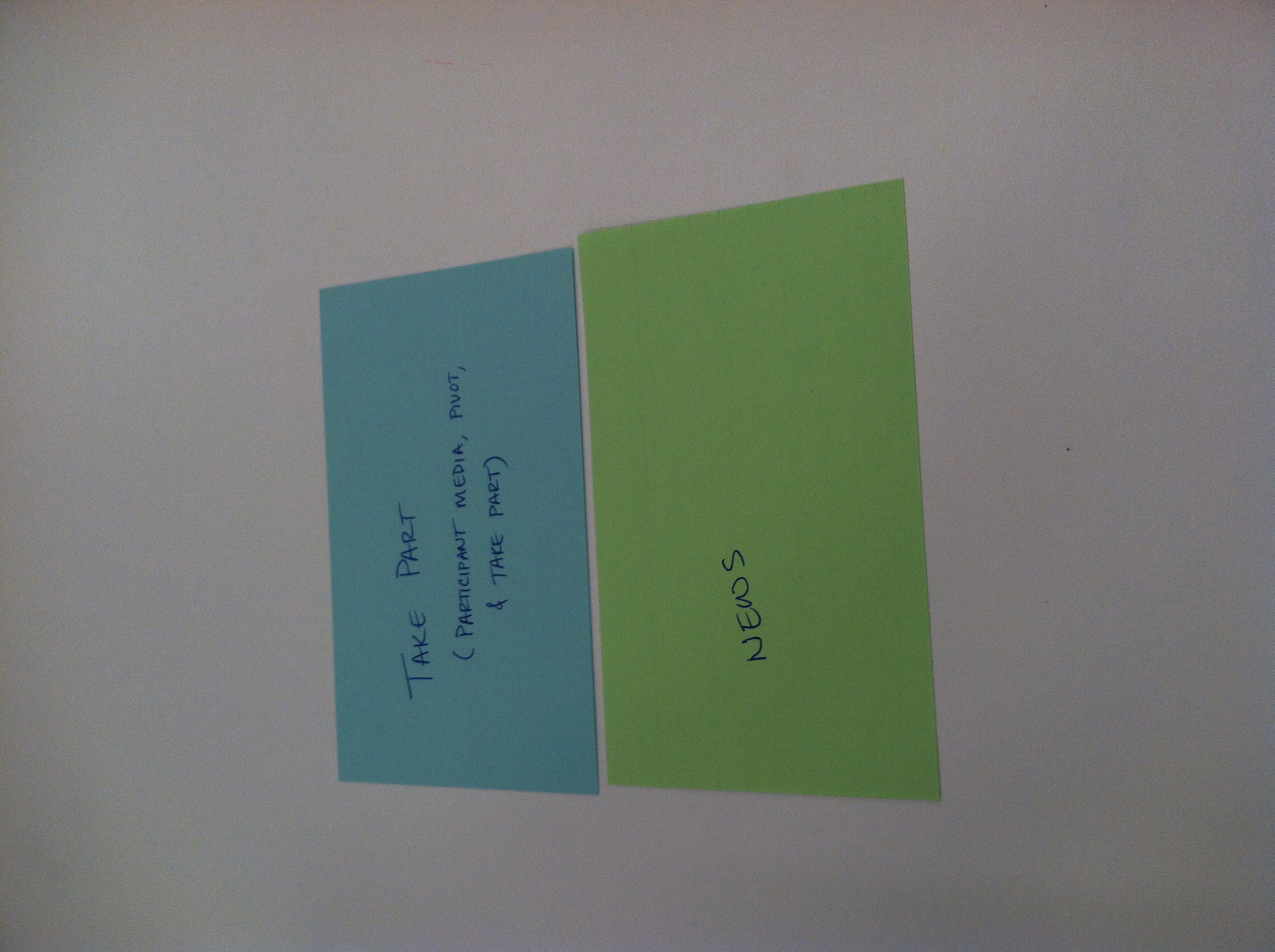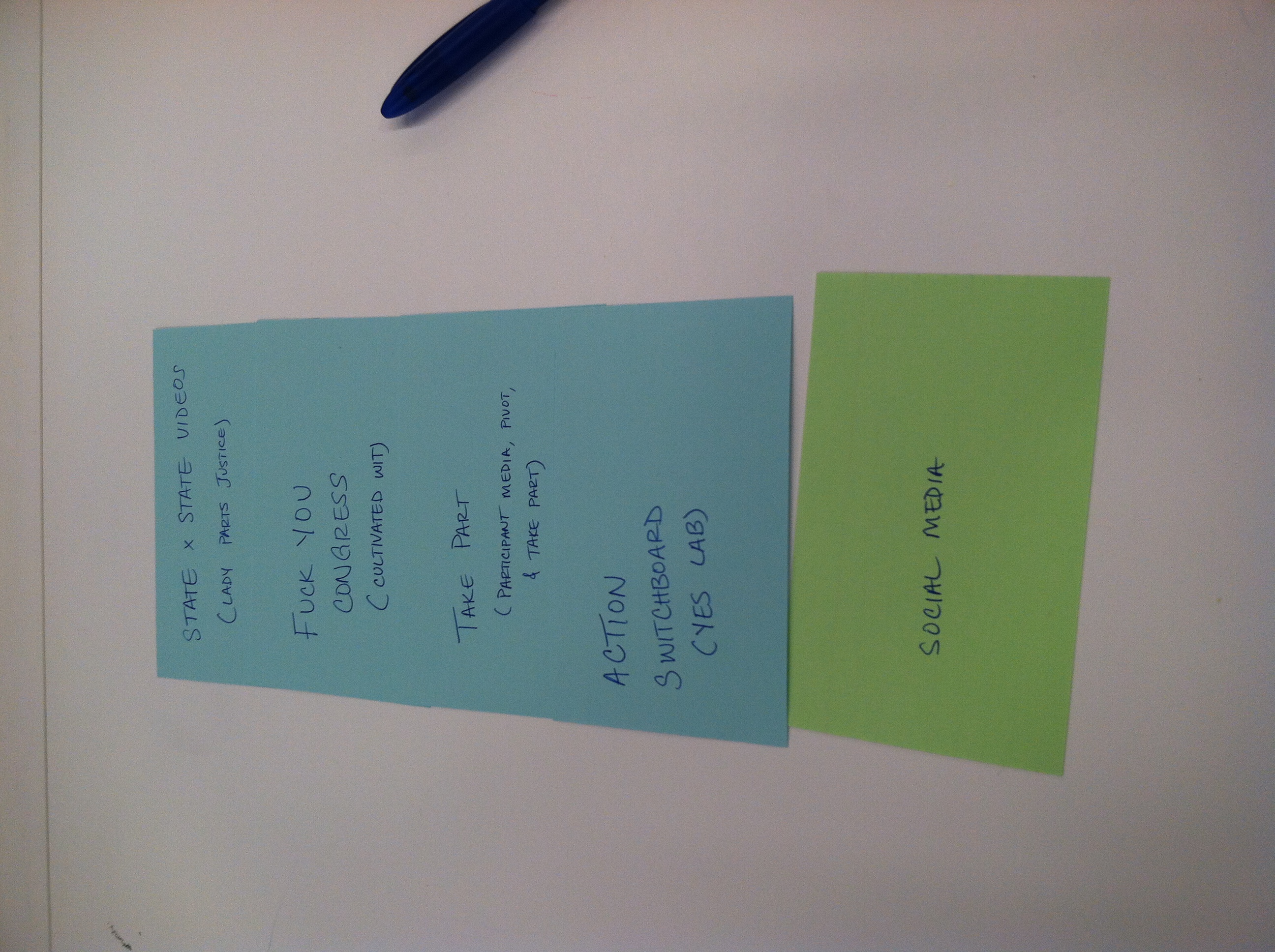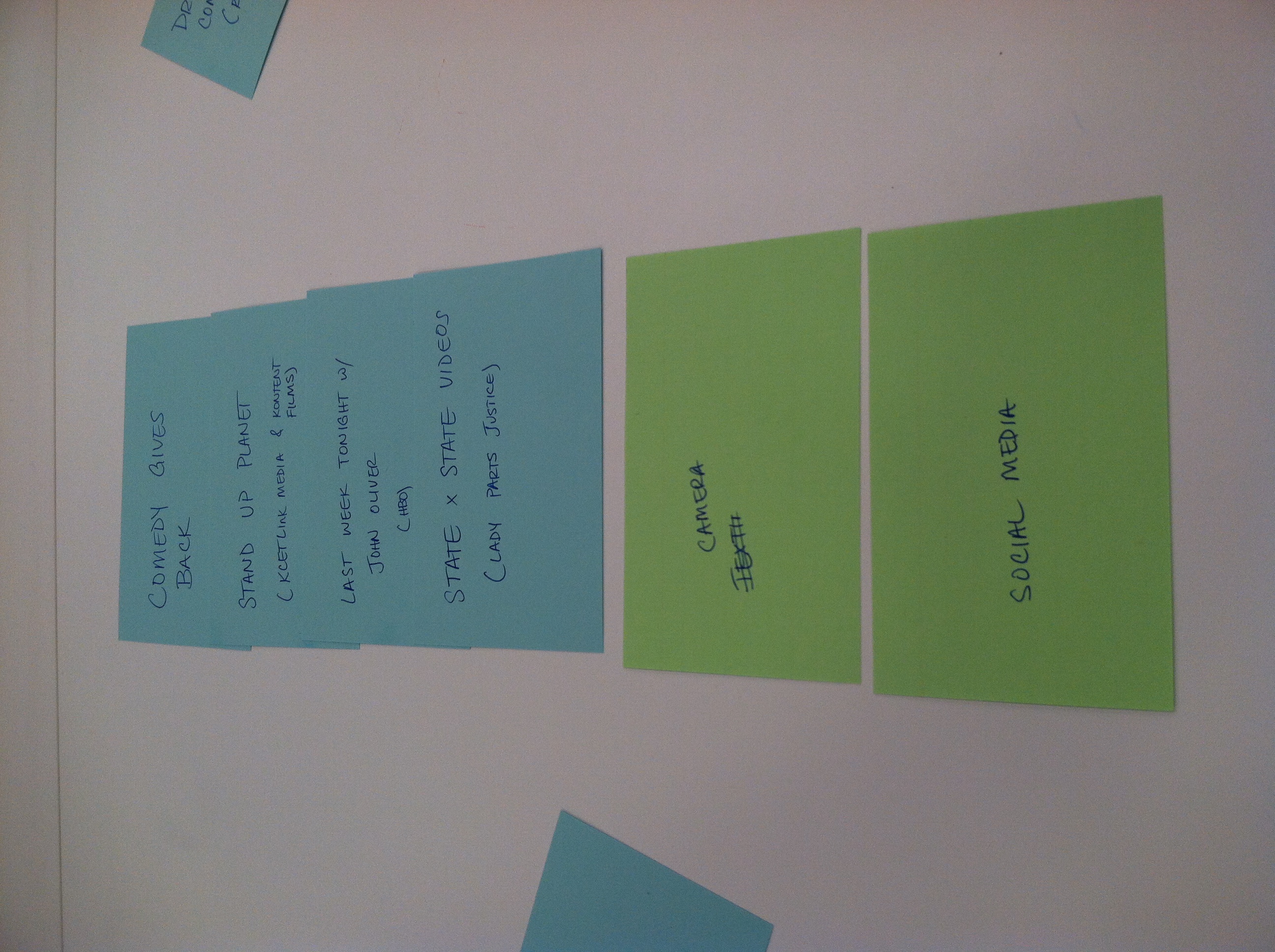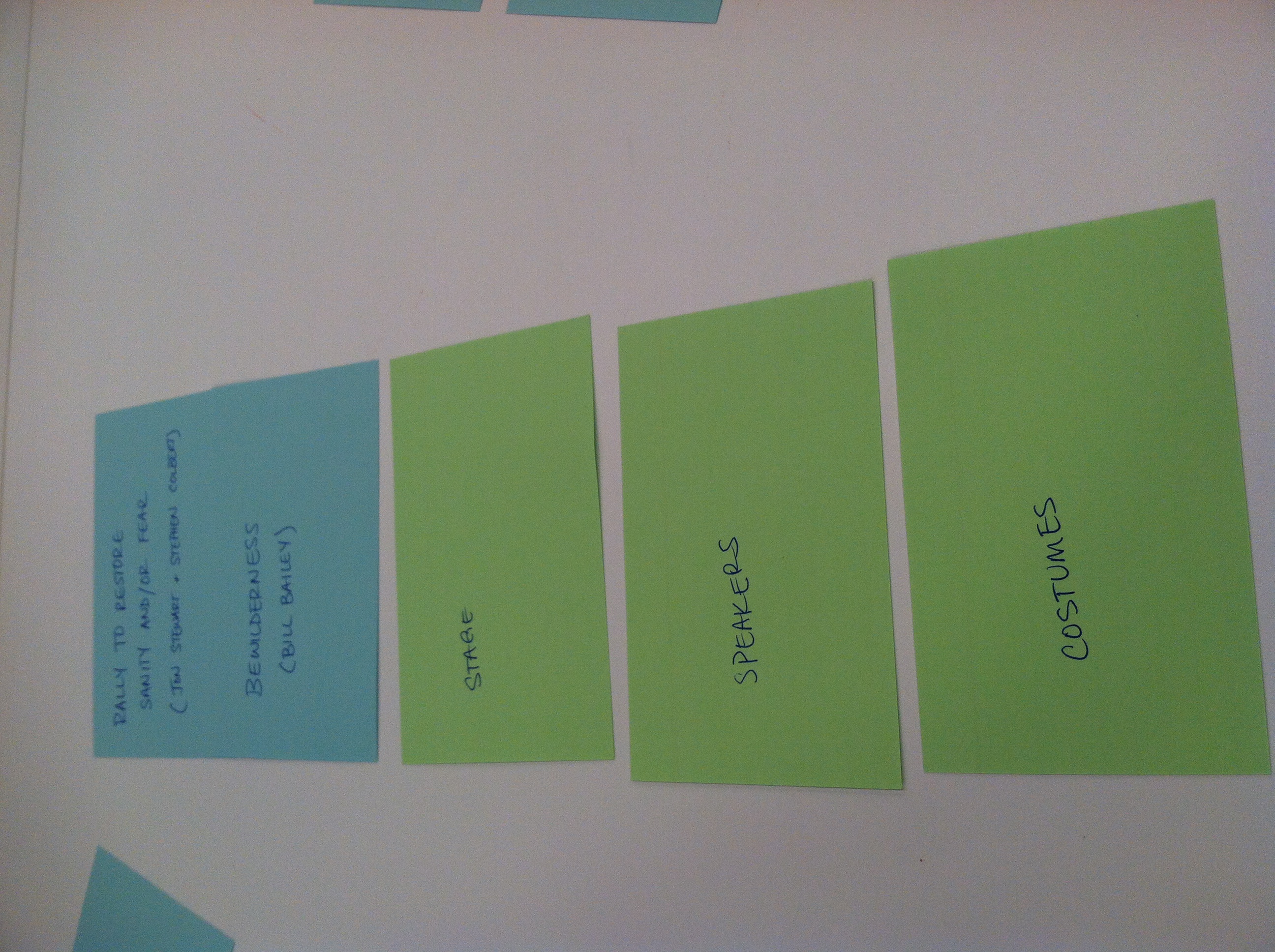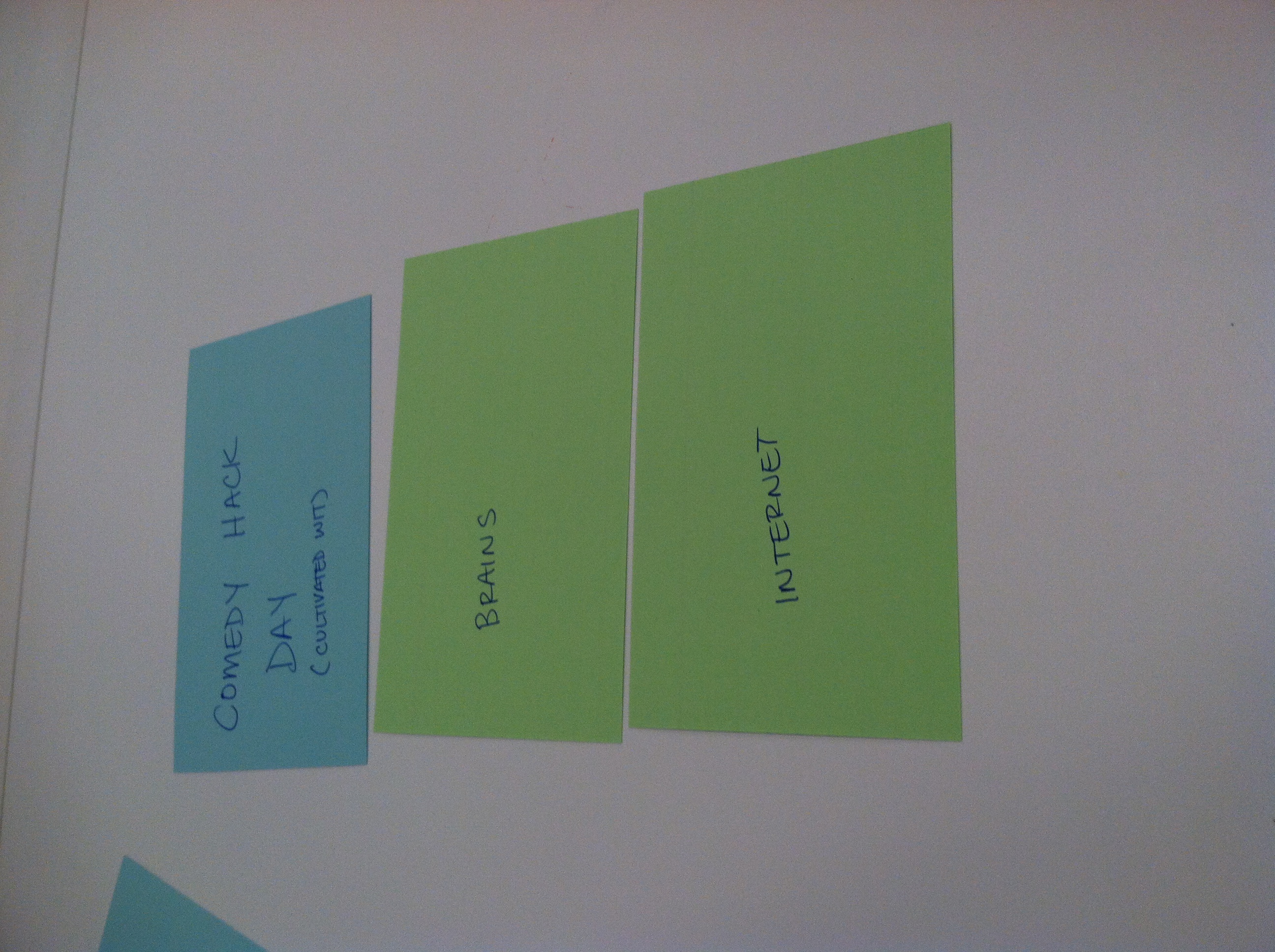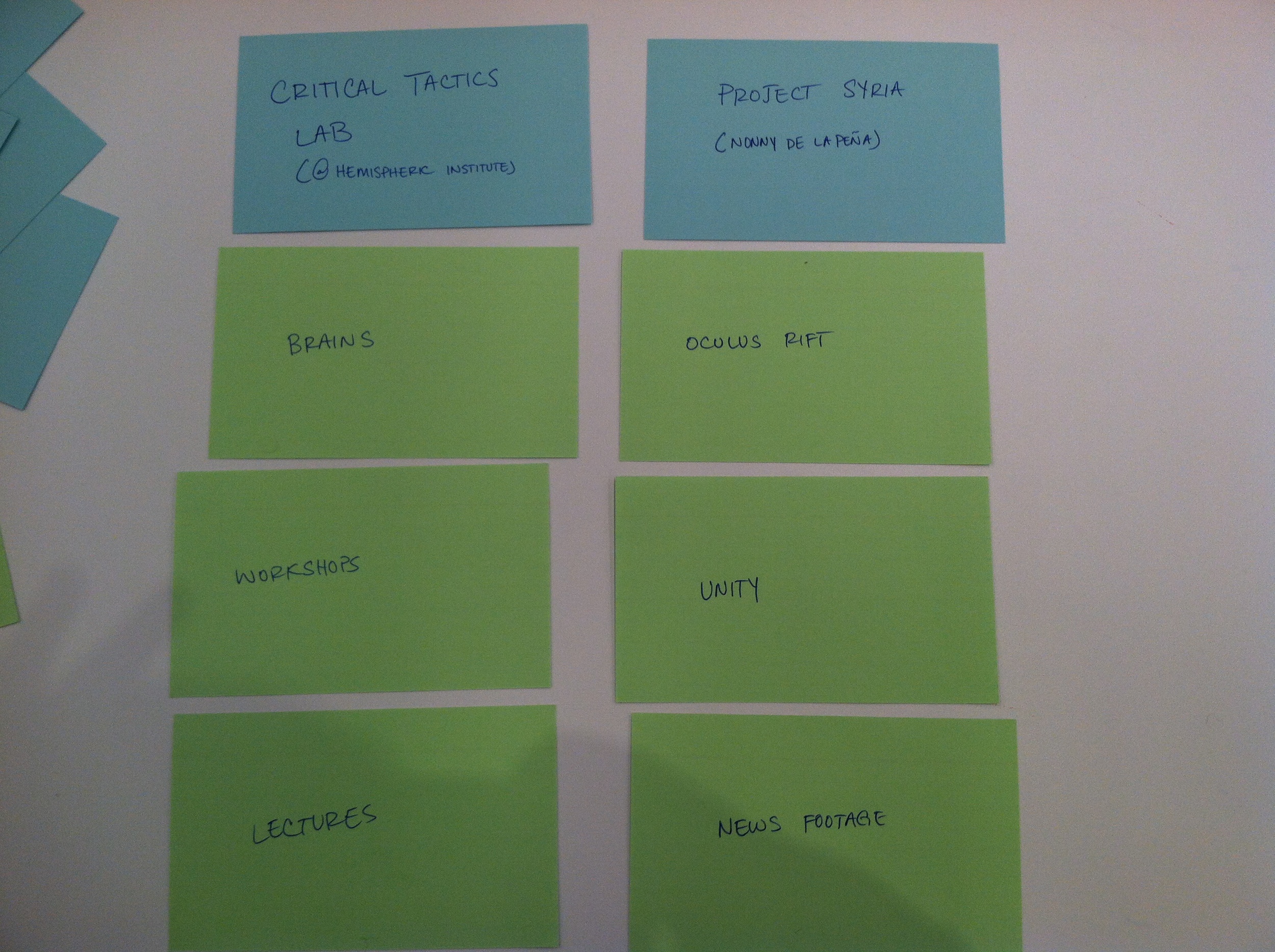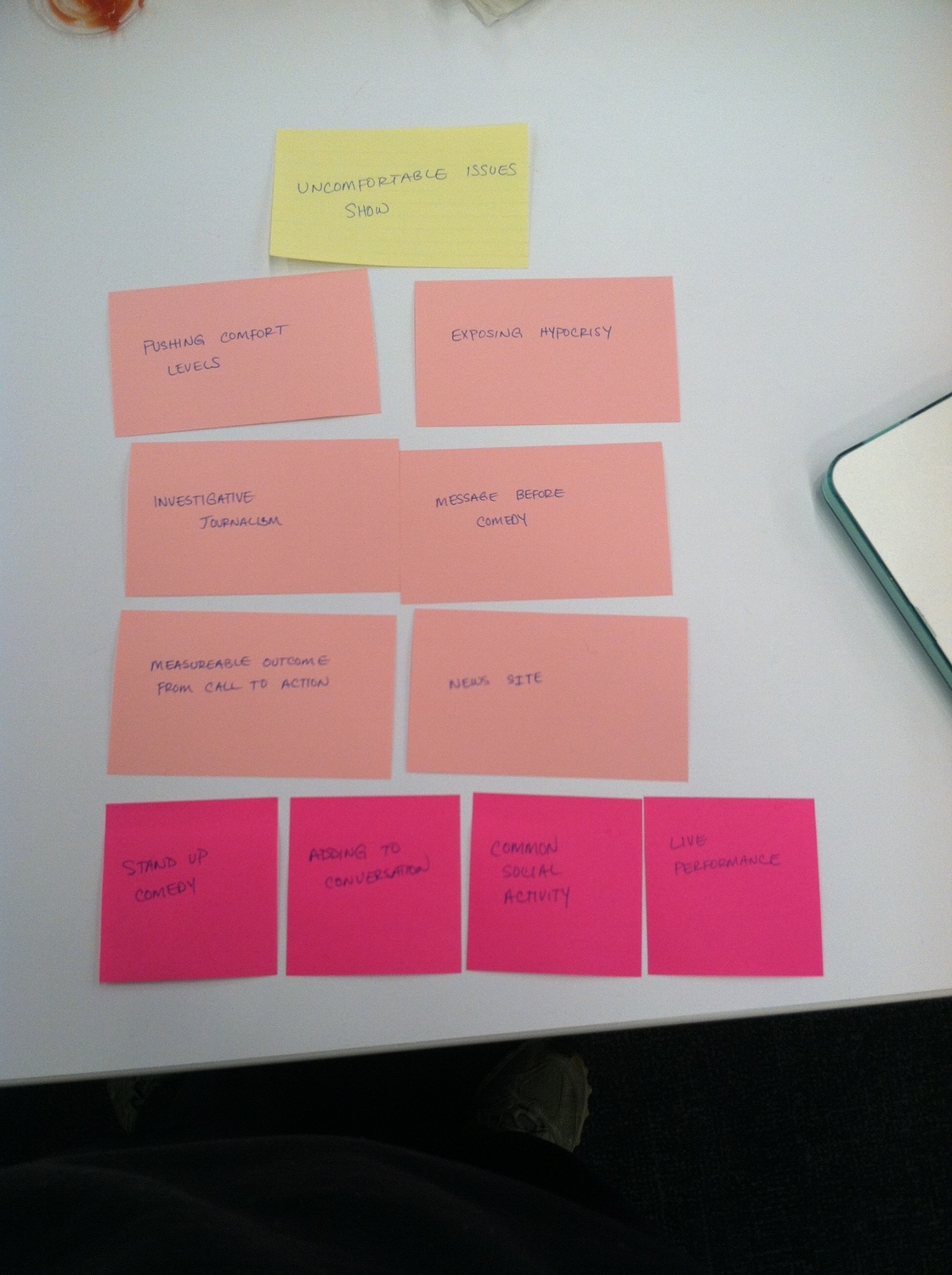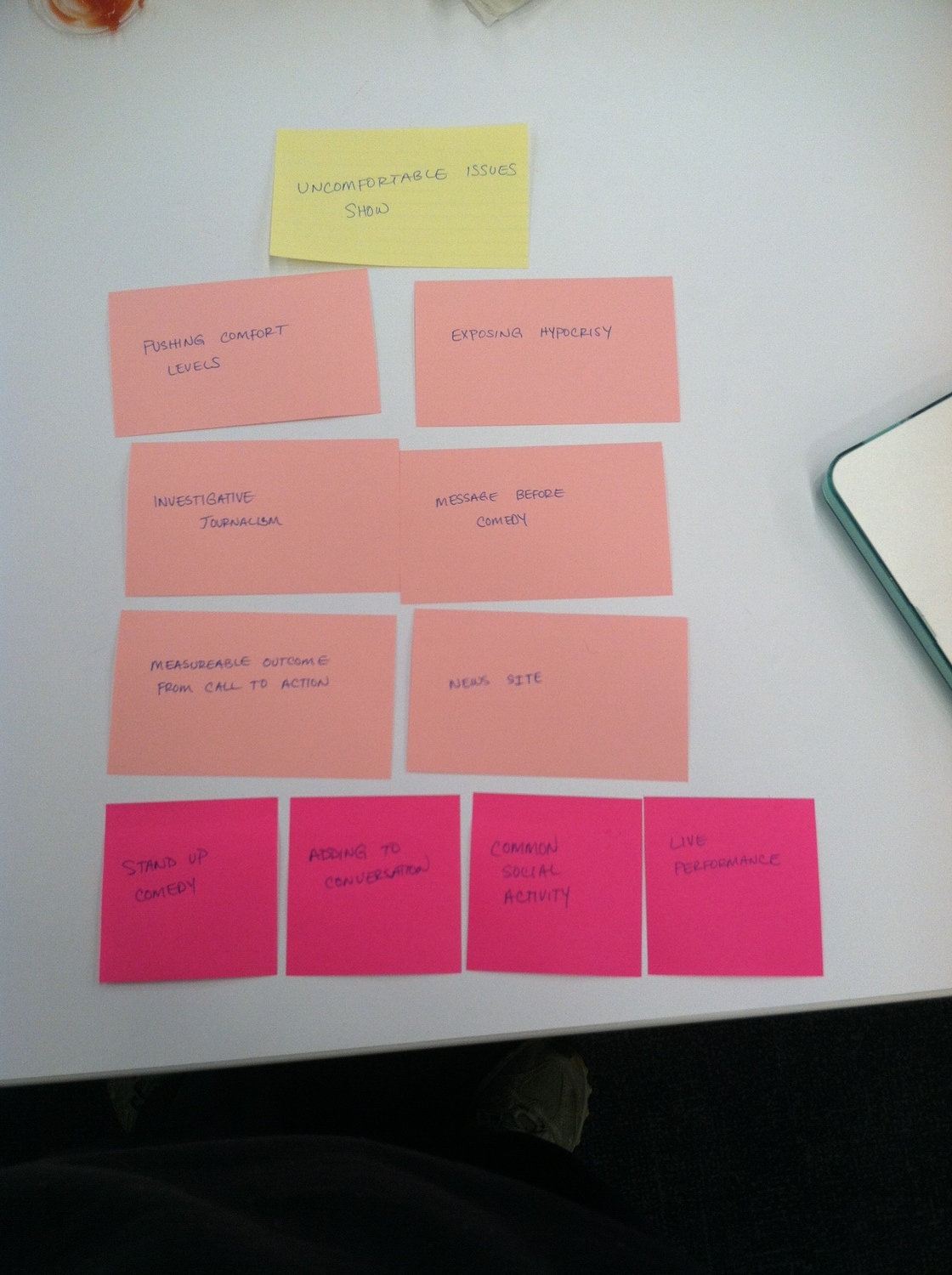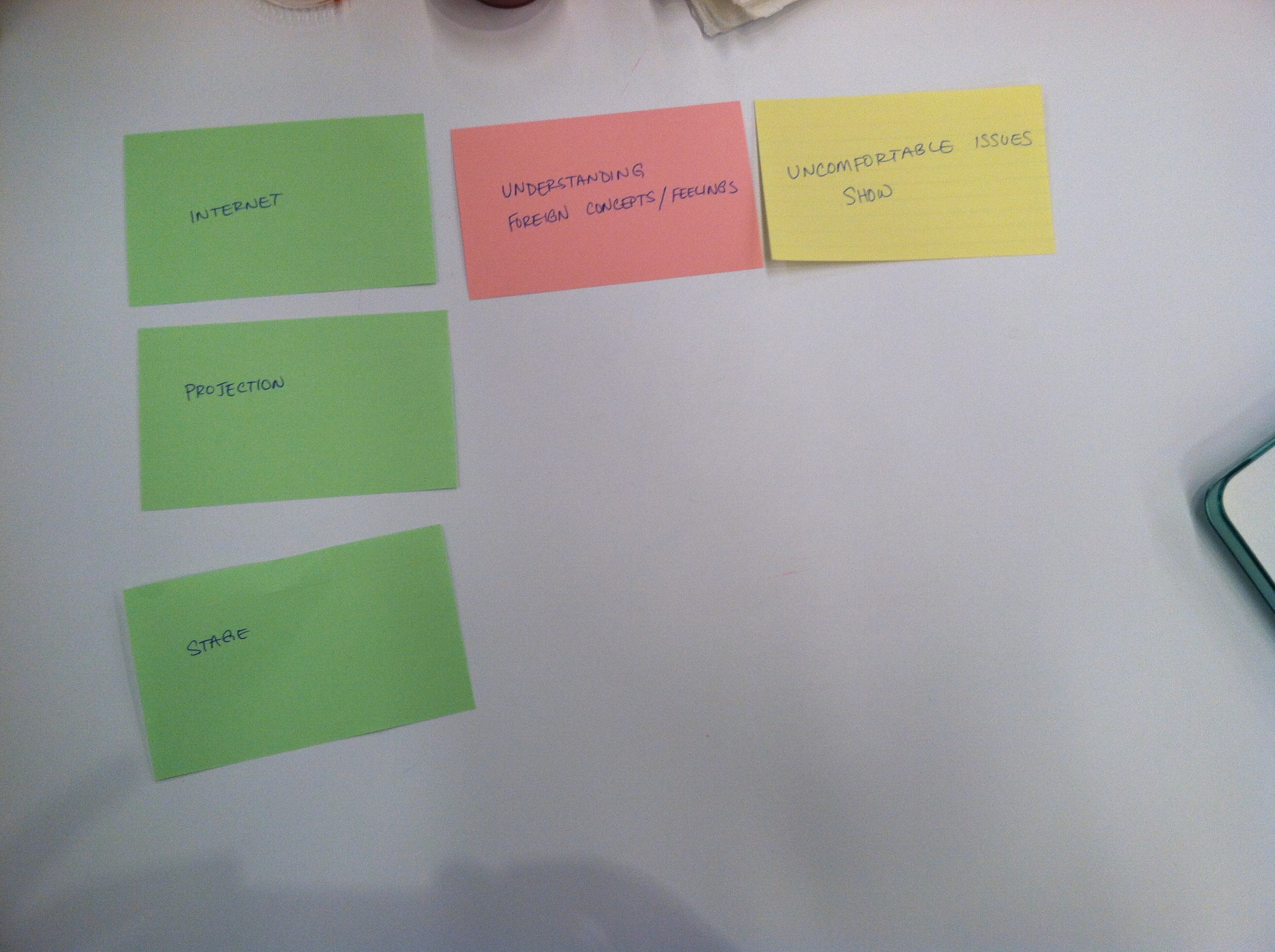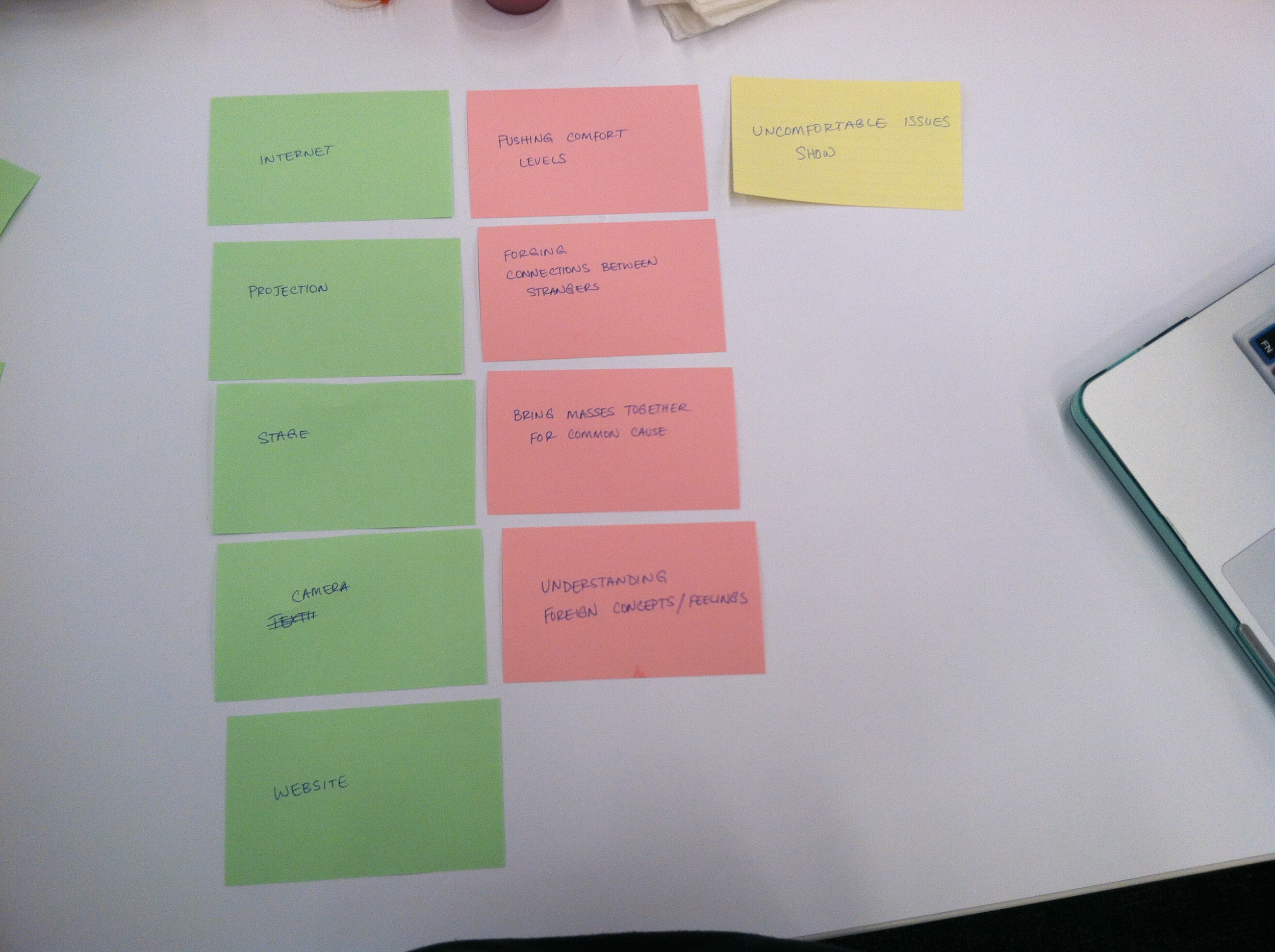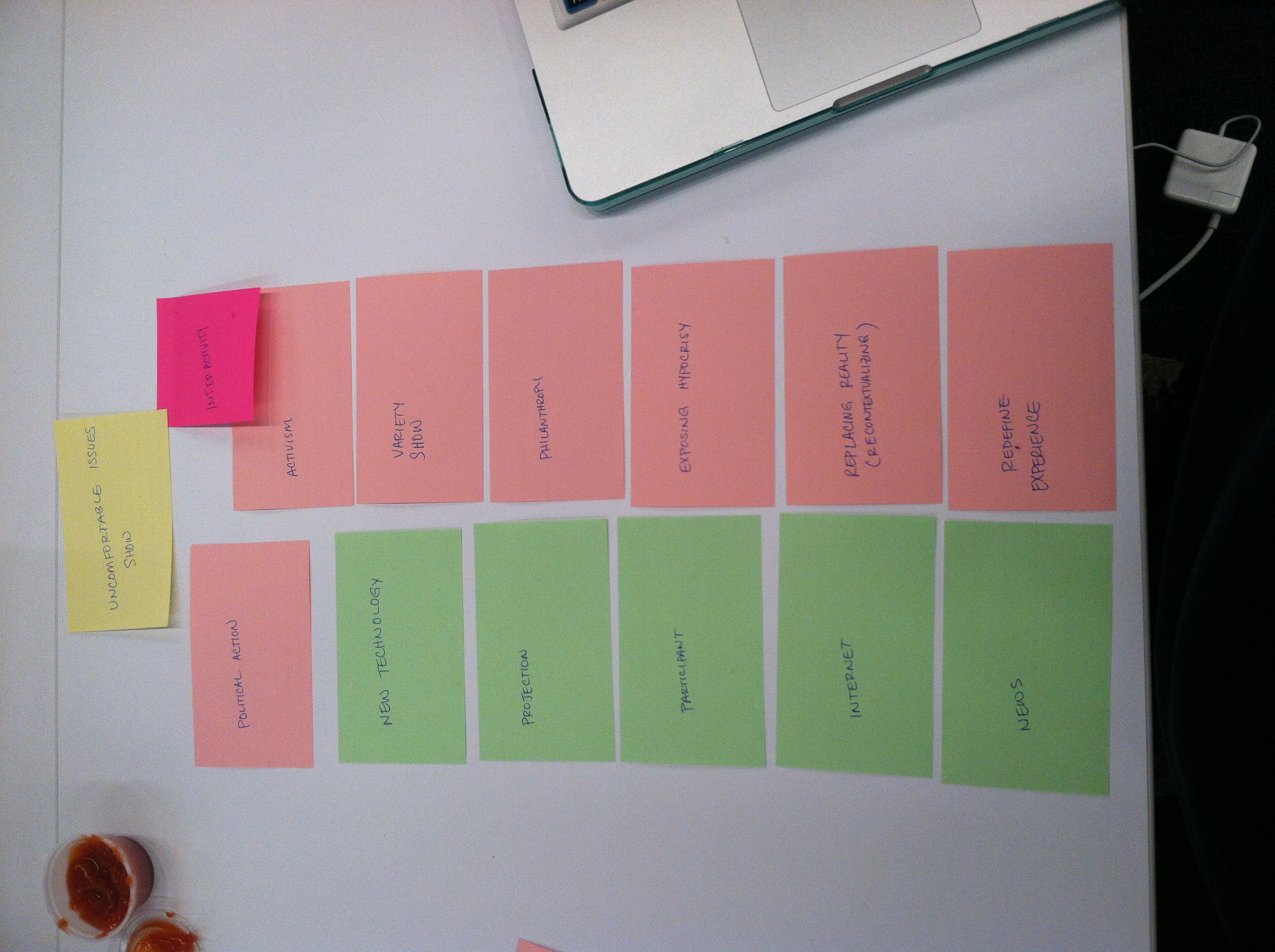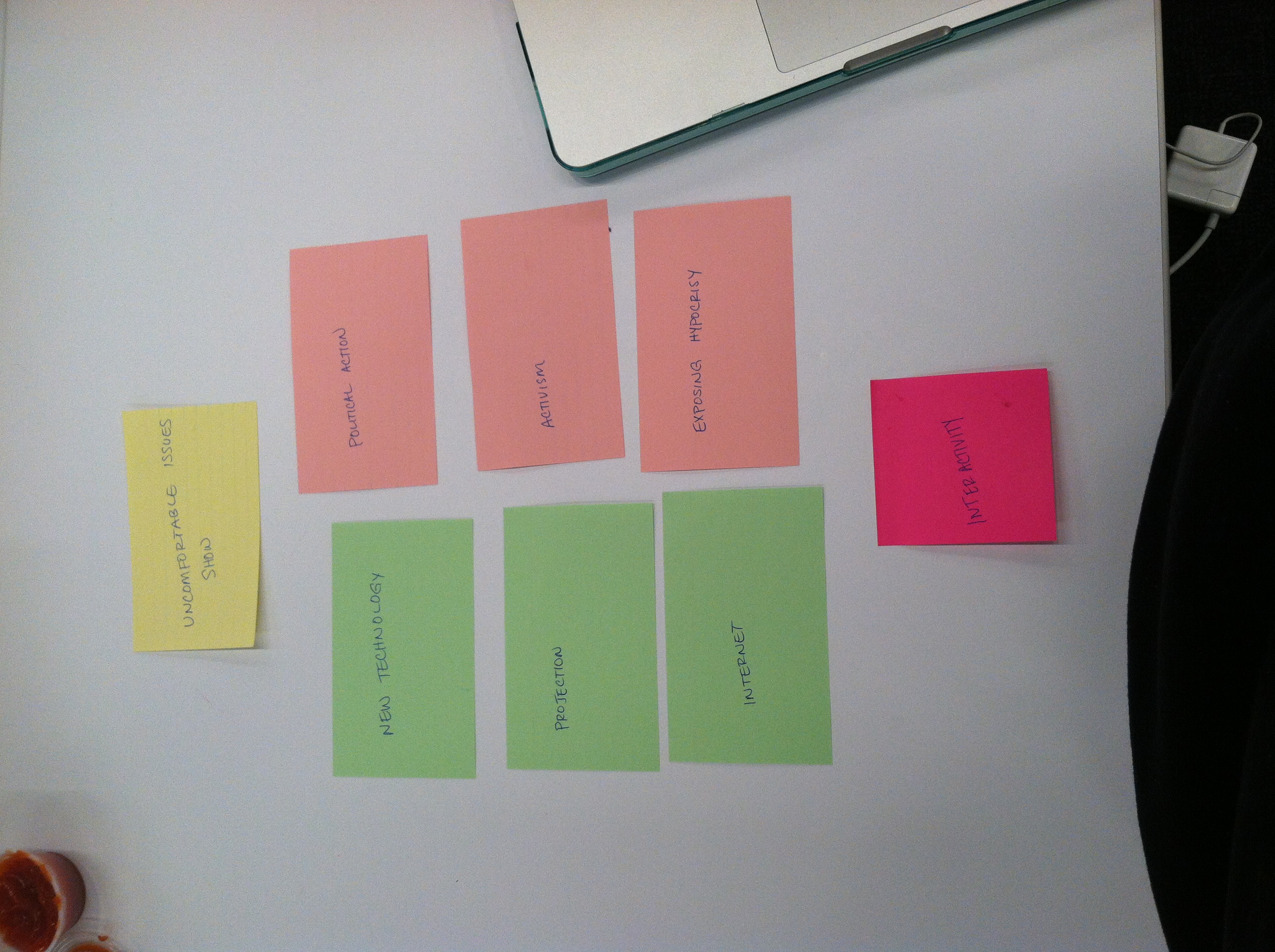A WORK IN PROGRESS
To give a rough sense of the kind of video content the site will be promulgating - kindly see below. Please keep in mind the video is VERY rough - the audio still needs to be cleaned up, and motion graphics need to be added. But it serves to give you an idea in a nutshell.
PROGRESS SO FAR - UPDATE (4/20/15):
We had a writer's meeting!
Following a meeting with thesis advisor, Jacques Servin (of the Yes Men), I realized that what I really had to do now was produce some kind of content that could convey what it is I'm trying to do.
The problem with the election is that there really isn't much to news that we can tackle at the moment beyond superficial personality jabs of the candidates in the running so far. My writers and I decided that the best approach, in that case, would be to orient ourselves around a purpose - in this case, we wanted something that would encourage people to register to vote. We decided to present it through the cause of voter ID laws. Essentially, we are presenting a "some people can't vote, which is why it's important that you do" situation.
The sketch we created from our writing session used a Colbert-esque approach to explore voter ID laws - presenting the opposite view in an exaggerated way to expose the faulty logic within. It is a very rough draft and needs to be finished (and then polished). The next step will be to actually produce it. My aim is to have the video finished by May so I can present an example of the kind of content the project will be showcasing.
PROGRESS SO FAR - UPDATE (4/13/15):
Having defined the focus of my project (which took a bit of a turn from what I originally proposed), I took a break from the coding to hammer out a bit more of the ideation side of it.
I revisited this report that I cursorily read while writing my paper, but didn't venture too far into it. The report, "Participatory Politics," by Cathy Cohen and Joseph Kahne focuses exclusively on new media and youth political participation. The report was crucial in giving me an idea of how youth use digital media to orient themselves with the elections as well.
Using this as a jumping off point, I have reached out to the following people to get further insight into creating technologies and content specifically for this audience and for this purpose. I feel I need to hone my content vision before jumping into coding:
- David Pruter - CTO, Rock the Vote
- I reached out to David because I think Rock the Vote's purpose is the closest to what I think I want to pursue - using pop culture and entertainment to encourage youth action.
- Cathy Cohen and Joseph Kahne - Lead Researchers, Youth & Participatory Politics Survey Project (and authors of the aforementioned report)
- Cohen and Kahne's report was obviously a big player in my decision to switch up my idea and create a product that integrated their findings.
- Peter Koechley - Co-founder, Upworthy
- Full disclosure: I used to work with Peter so I know him and his work. That is exactly why I think he has much to offer in terms of advice. Before Upworthy, he was involved in a variety of election related campaigns to drum up political participation. As someone who has melded comedy and participation together before, I feel he would be a real resource for ideas.
Because I sent the emails out late, I am still waiting for responses. In the meantime, I'm still coding away on those Dash tutorials...
PROGRESS SO FAR:
After ruminating for a while on which direction to take my idea, I decided to go back to the original idea of "The Uncomfortable Issues Show." The primary reason for this was because I want to tackle issues as they are addressed politically and in government, in particular. As we approach an important election year, I feel this will be an interesting exercise in discussing issues beyond the standard talking points that are exhausted debate after debate. This also allows me to explore multiple issues - a salient point because I had the HARDEST time trying to pinpoint only one issue.
So far, I have compiled a database of close to 40 sketches with my writers. It seems like an impressive number, but I am not 100% satisfied with the sketches. Many need to be updated and based on more factual research. I also need to look into incorporate technical elements.
Additionally, though, as a complete novice programmer - I started the bare bones HTML structure of the web app. This is not an attempt at fishing for compliments by saying "bare bones" - I really had only the slightest idea about HTML or CSS. To put together this preliminary code, I completed three tutorials through General Assembly's Dash. The result is obviously very rough and the work of a complete novice.
ARTICLES AND BOOKS/INITIAL RESEARCH (AKA SOMEONE BESIDES ME ALREADY HAD THIS IDEA):
Baumgartner, Jody C., and Jonathan S. Morris. Laughing Matters: Humor and American Politics
in the Media Age. New York: Routledge, 2008. Print.
Goldman, Nancy. "Comedy and Democracy: The Role of Humor in Social Justice." A Working
Guide to the Landscape of Arts For Change (2013): 1-9. Animating Democracy. Americans
for the Arts, 27 Nov. 2013. Web. 16 Feb. 2015. <http://bit.ly/1JmNx2v>.
Jenkins, Ronald Scott. Subversive Laughter: The Liberating Power of Comedy. New York:
Free Press, 1994. Print.
Kutz-Flamenbaum, Rachel V. "Humor and Social Movements." Sociology Compass 8.3 (2014): 294-304. Mar. 2014. Web. 16 Feb. 2015. <http://bit.ly/17iHn1x>.
My preliminary research centered around the intersection of comedy and politics - how politics have served as satiric fodder since the mockery became a concept and how a humorous approach is utilized to spread awareness over social issues. Both papers addressed the trend of comedy currently dictating the overall humor stylings of today to begin with. The “Incongruity Theory” describes the enjoyable experience of humor as being the mismatch between what is expected and what is presented. From this foundation, one can build on structuring a commentary and presenting a message to the audience.
While I have read both articles, I haven’t progressed very far in the books at all. All four sources, however, point to comedy as a social corrective. I always considered it as such, but it was specifically mentioned on multiple occasions in these sources that comedy is the tool with which the regular citizen can call out those in power; just as the jester was the sole person who could challenge the king in olden days. As expected, every introduction name drops The Daily Show and The Colbert Report. In the context of humor being applied to social issues and movements, both articles mention that the comedic approach makes the material and message more accessible to those who the activists are targeting.
How does one balance the seriousness and levity of a situation, though? This was a very cursory pre-research phase. These four sources together, it seems, will give me a solid foundation and idea of how humor in a political context.
MAKE A STATEMENT (OR TWO/THREE):
1. By increasing the interactivity of a theatrical sketch comedy show, the audience can be influenced to take action on a particular social issue, within reason.
2. While social commentary is more ingrained in today's media culture than it has ever been, it needs to evolve in ways that influences its audience to not only be more informed but to take action with the intent of improving a problem or situation.
3. As comedy becomes a genre finally respected for its intelligence and ability to engage audiences, it will be beneficial to create a way to broach subjects and issues that are underreported or often misrepresented.
DESCRIBE THE ARTISTIC AND CREATIVE MERIT OF YOUR IDEA:
I am a comedian and never has a time seemed so apt to declare that in a loud and proud way. No one who has been a savvy consumer of media culture over the past few decades can argue that the sharpest social commentary has come, not from “panels of experts” on news shows, but from comedic personalities on niche cable networks and the corners of the internet. There is a reason that the majority of young viewers these days get their news from The Daily Show and The Colbert Report. Comedians are people with a point to make and way to express it. Modern satirical commentary thus makes the presentation of information and ideologies more accessible, particularly in a culture that is overloaded by information saturation.
That is what I aim to do with my idea for a multimedia sketch comedy show, tentatively titled “The Uncomfortable Issues Show.” I have the comedy, writing, performing, and producing background. What I want to learn is how best to put on a production that is not merely a “buy a ticket, see the show, go home to dream off the impact” piece. Taking action should be an integral aspect of the show, not a chance byproduct. How can one integrate action taking into what is, for all intents and purposes, a sketch comedy show?
WHY DO YOU CONSIDER YOUR IDEA TO BE A MEANINGFUL CONTRIBUTION TO THE FIELD OF DIGITAL MEDIA?
In preparation for thesis related research, I independently sought out meetings and events that seemed to align along the lines of my interest in comedy, social issues, and digital media. More often than not, these people and events fell predominantly in comedy and social issues category.
“I have an idea that I’m currently trying to develop. It’s like a multimedia sketch comedy show oriented around social issues? And I want it to have a digital component to it - like a place where the audience can go to take action. Do you have any suggestions of previous work like this I can check out? Or do you know of any people or organizations who do work like this?”
The answer was almost always, “I don’t know of anybody doing anything like that. I wish I could help, but the good thing is, you can blaze the way!”
Unless the people I spoke to were exceptionally ignorant, I think it is safe to assume that while there have been attempts at bridging the gap between activism and the arts (particularly theater), an effort, such as the one I want to take on, has not been undertaken to the extent that I want to.
Obviously, the juggernauts of comedy/social issues/media, The Daily Show and its cohort, are at the top of my “Inspired By” list. What I ultimately want to do, though, is far from what they do. Engagement and interactivity is key to making my idea, “The Uncomfortable Issues Show,” a success. While it may not be reinventing anything, I believe its contribution to the field will be through its reappropriation of existing technologies, activism practices, and comedic stylings.
PINTEREST:
Check out the Pinterest board inspirations behind The Uncomfortable Issues Show!
BOARD MEMBERS (IN AN IDEAL WORLD):
TIMELINE OF SIGNIFICANT MOMENTS LEADING UP TO MY IDEA:
QUESTIONS…ALL THE WHYS IN THE WORLD:
1. Why use comedy to make a change?
2. What difference does it make if comedy is used as opposed to drama?
3. You keep using the word comedy. What exactly encapsulates comedy?
4. Why not just donate money and be done with it?
5. What constitutes an "uncomfortable issue"?
6. If people who don't want to be changed, cannot be changed - then why set out to change minds in this way?
7. What is more important - inspiring people to take action or changing harmful world views?
8. Can social commentary bring about social improvements? Like, actually?
9. If a project is inevitably going to "preach to the choir," what outcome do you actually expect?
10. How does one seek to address the problems inherent within the conceptions of people closest to you, both emotionally and ideologically?
LET ME ANSWER SOME QUESTIONS FOR YOU:
I am interested in this idea because I think comedy is the unique weapon of today's society that can "cut through the bullshit" the most efficiently. Comedy, satire in particular, has never been so on effective at being received - if anything, the recent Charlie Hebdo prove exactly that. At the same time, many comedians use this tool in very juvenile ways to see the least. Any Saturday night at the big clubs will include sets revolving around, for the most part and in no particular order: sex, relationships, bodily fluids, more sex, food, sex. I would like to use it in the way I have seen it best used: for political purposes. As statistics show that more and more people in the coveted demographic of 18-24 receive their news from sources such as The Daily Show and, until recently, The Colbert Report, I think my idea can tap into that audience to inspire real action. If John Oliver can do a segment on net neutrality and drive his audience to crash the FCC's website, surely comedy in other forms can inspire people to take on just as impactful actions. My idea, as it stands at the moment, lives in one place alone: my head. As it develops, it's real estate plan, ideally, will extend to the stage (in the form of a live performance) and online (in a website offering a digital platform action related resources).
EXISTING PROJECTS:
Existing projects
DESCRIPTORS:
ENABLERS:
IDEAS:
IDEAS LIST:
All my ideas revolve around one basic idea, explored in various ways, as previously discussed with my professor, Dana Karwas.
"The Uncomfortable Issues Show" first began as a sketch comedy show about various "-isms." Through this exercise, I played around with various descriptors and enablers to see how this life performance show might take form.
The main aspects of this idea include:
- political activism and action-oriented
- topical and social issues
- integrating the web in an effort to involve more people and in ways outside of the show's venue
- interaction with audience
- exposing hypocrisy
- redefining conversations
